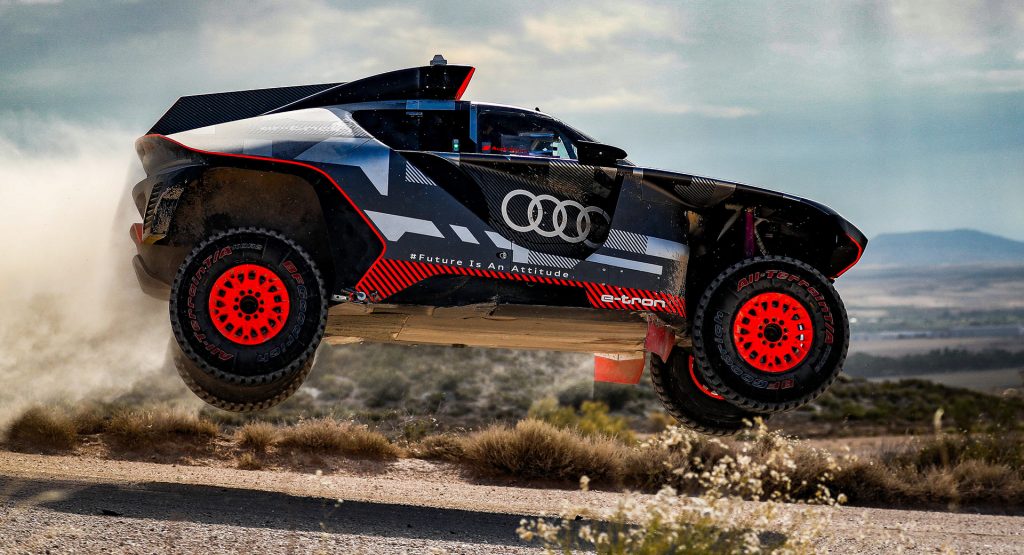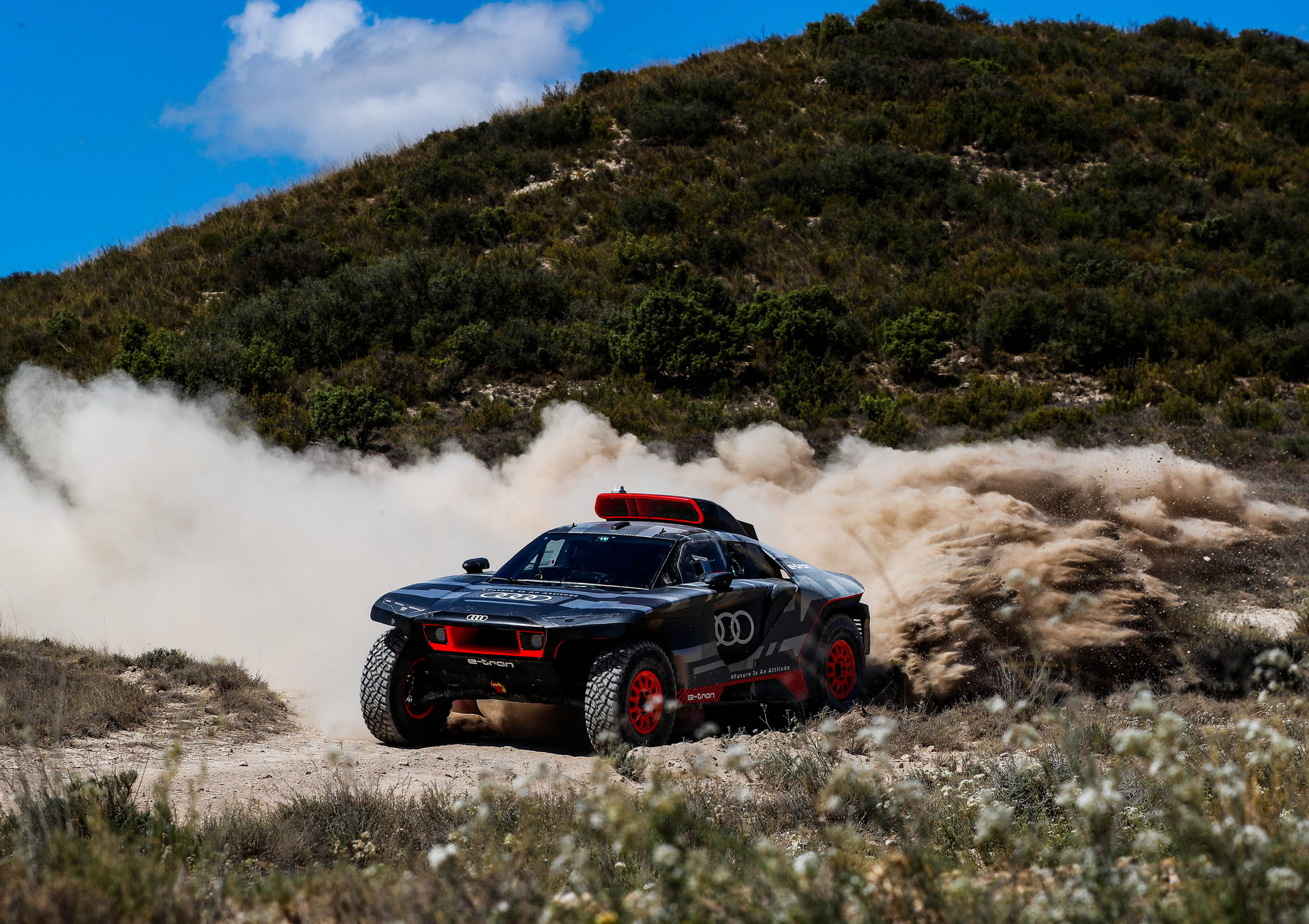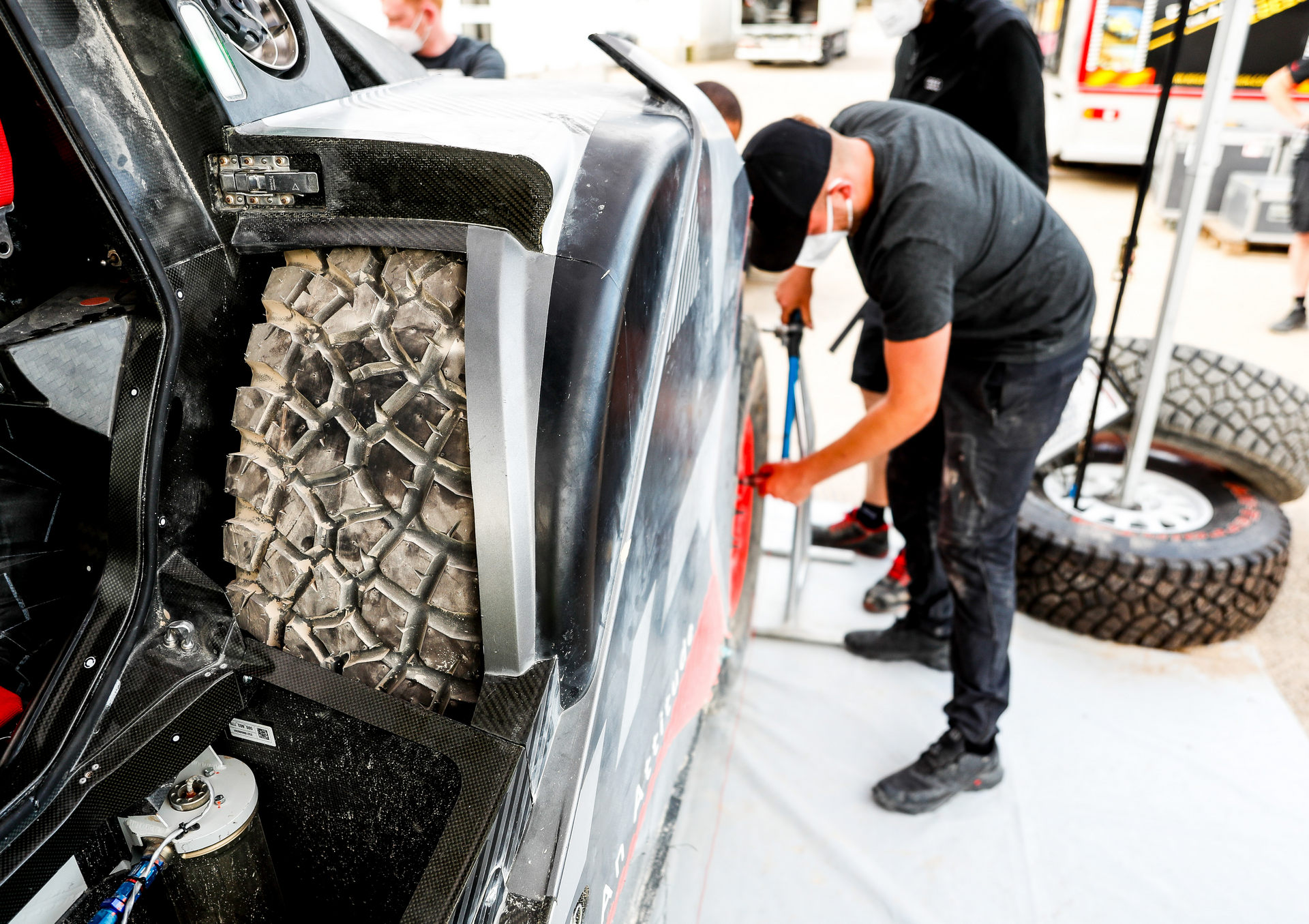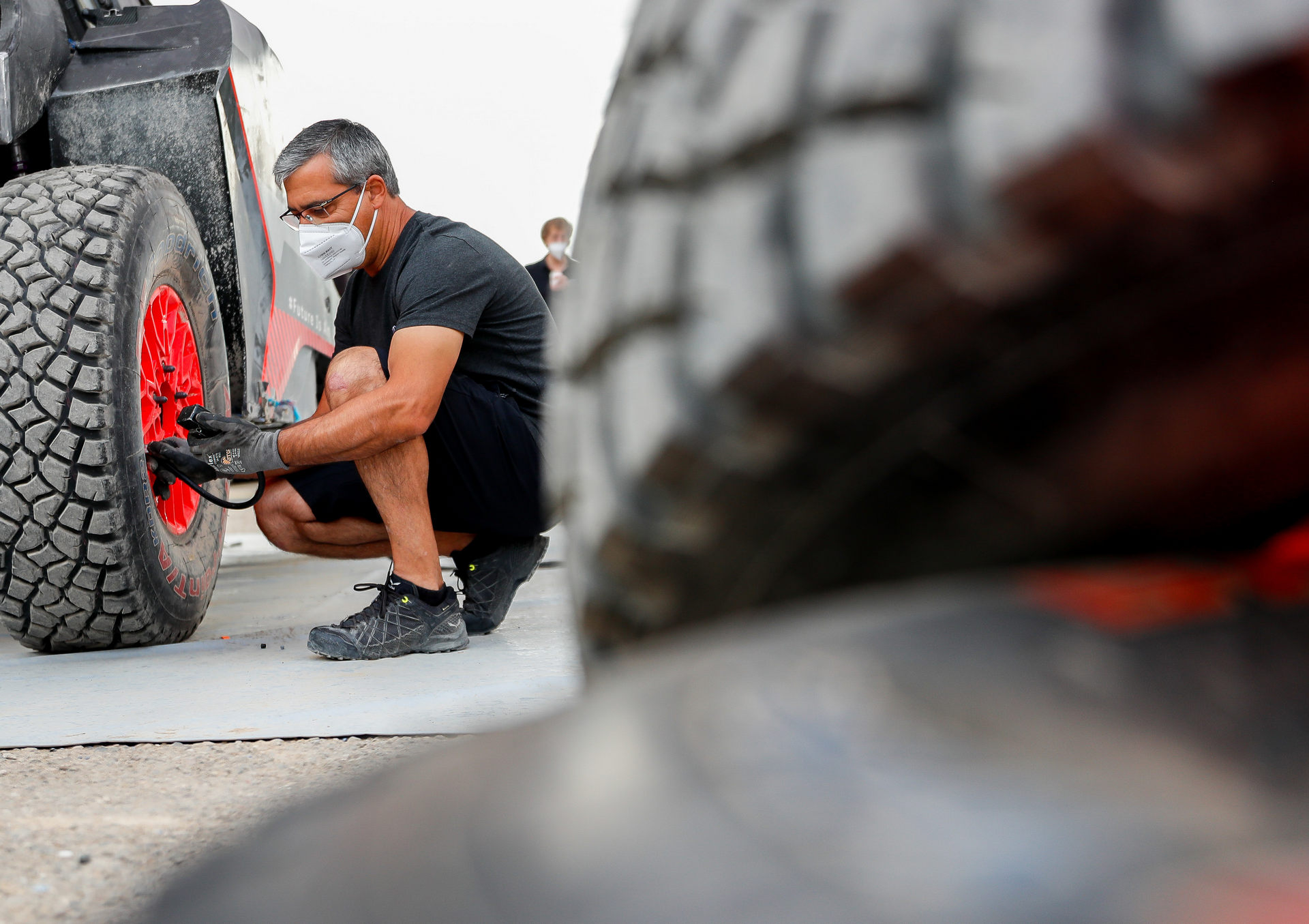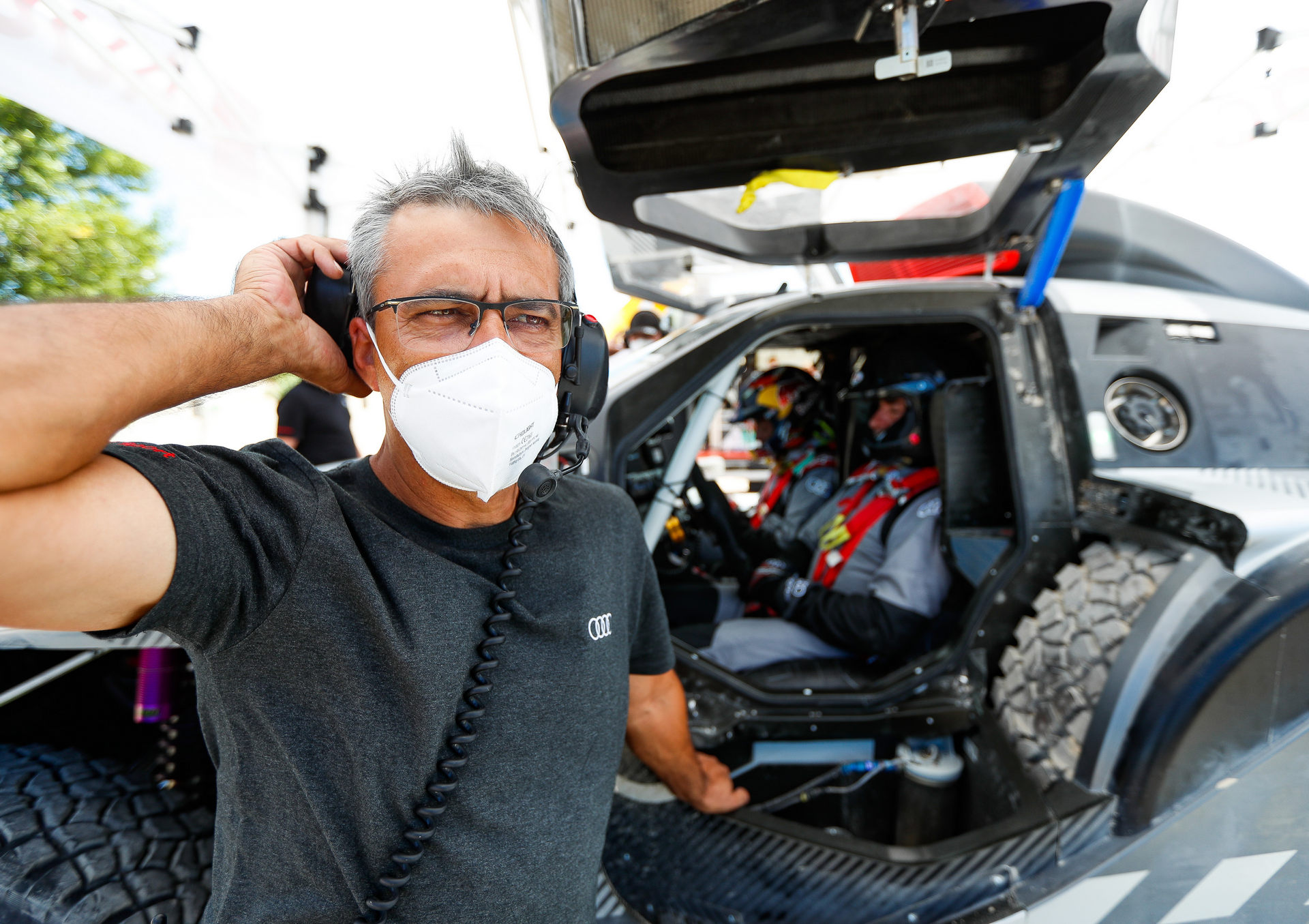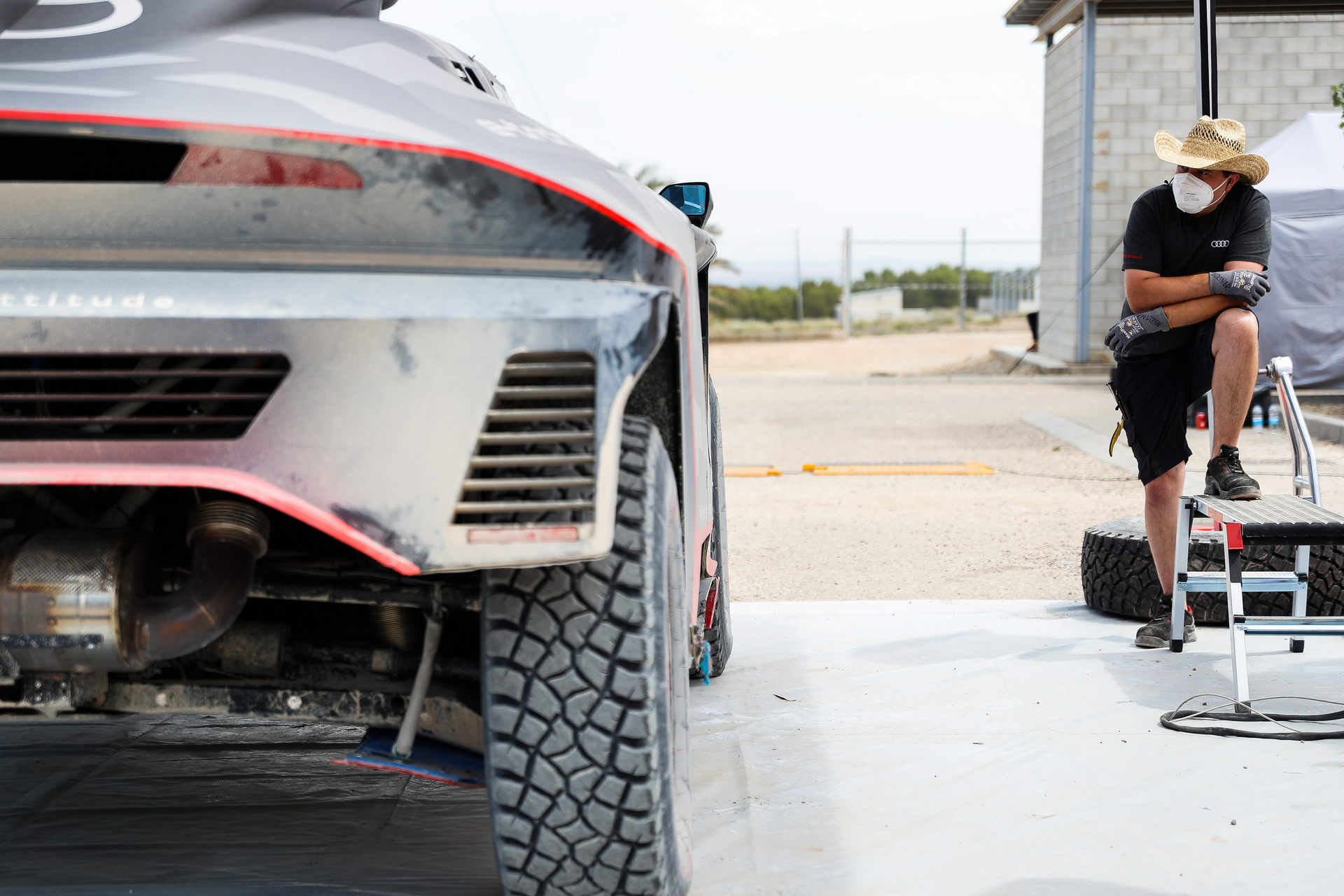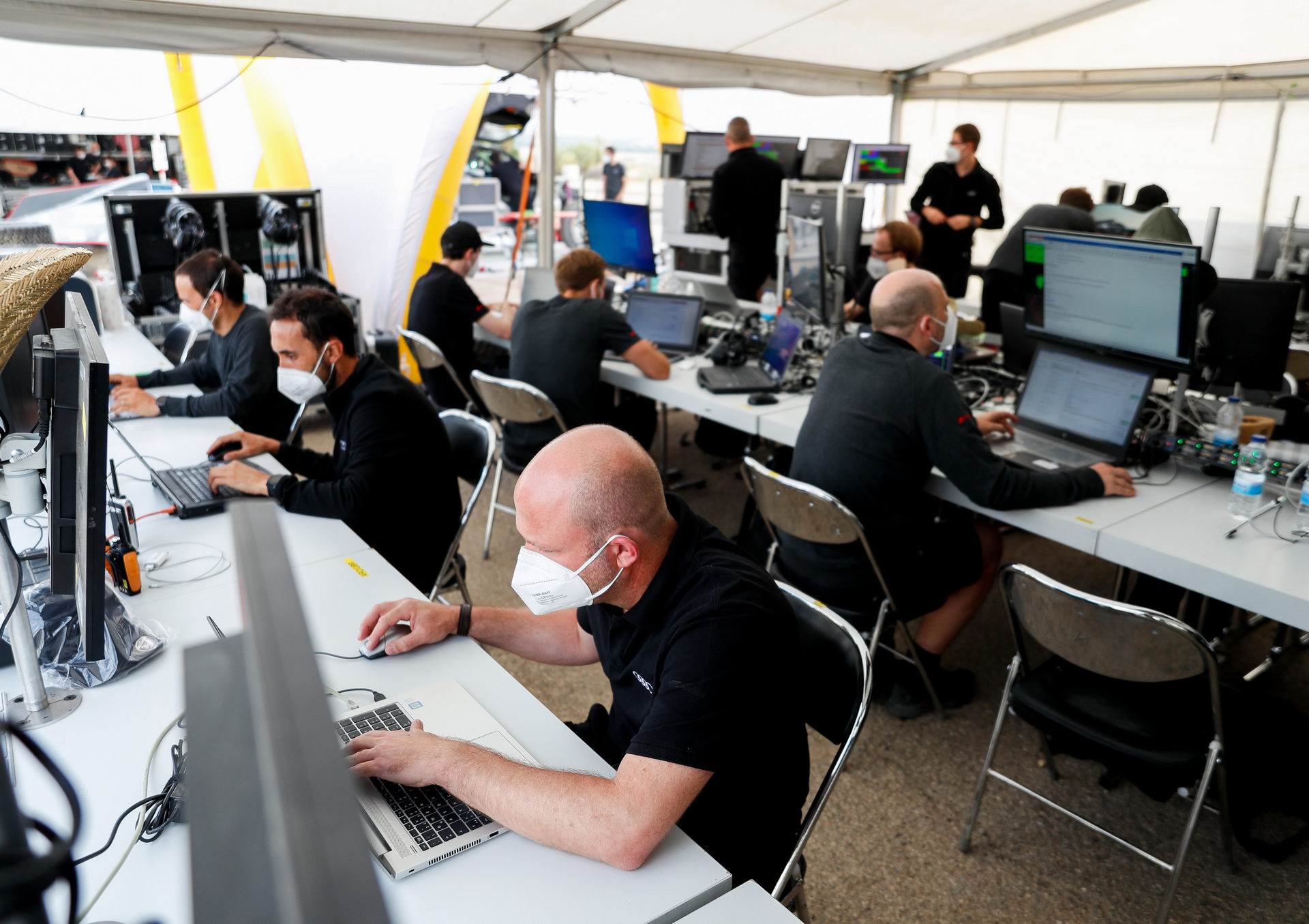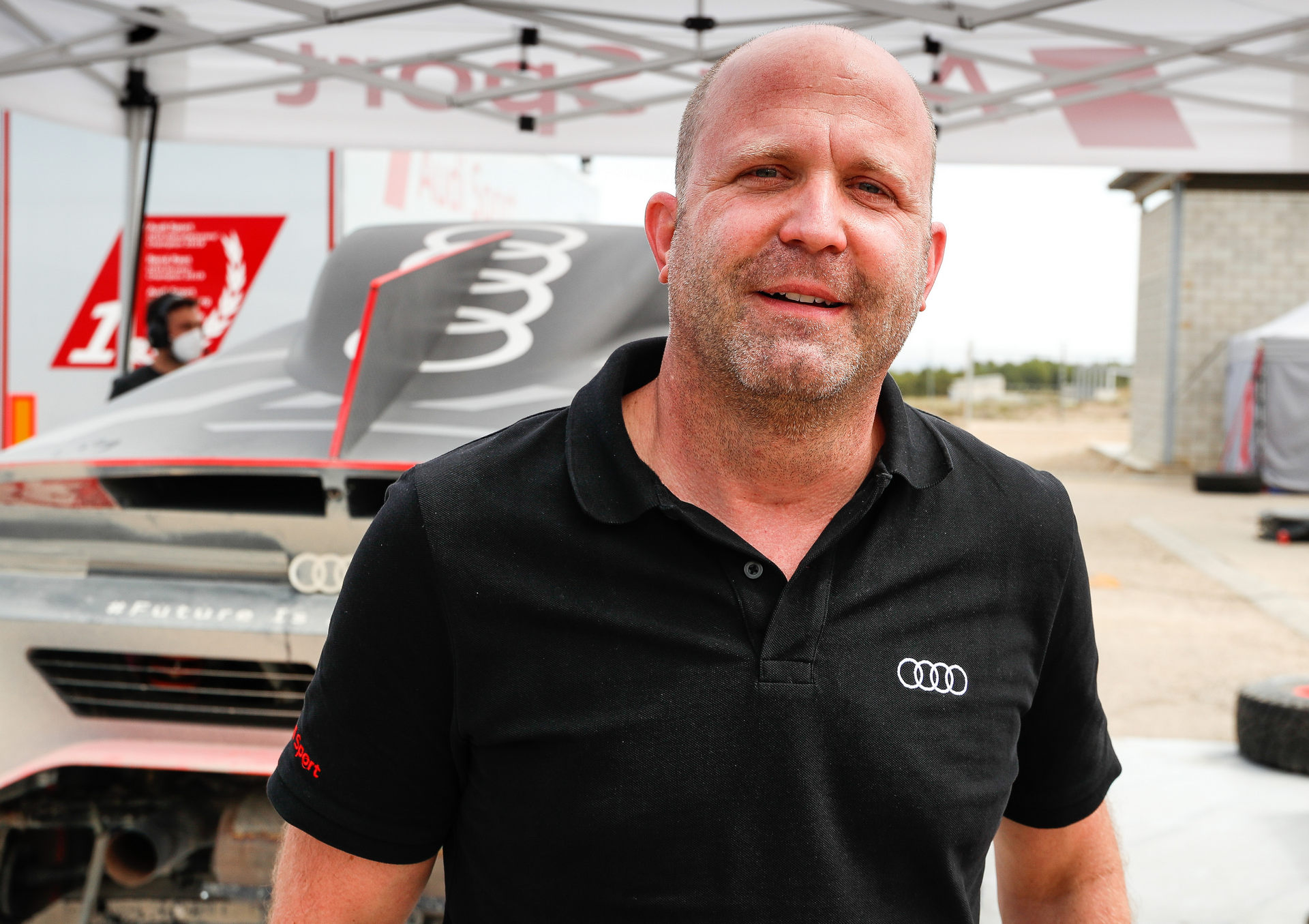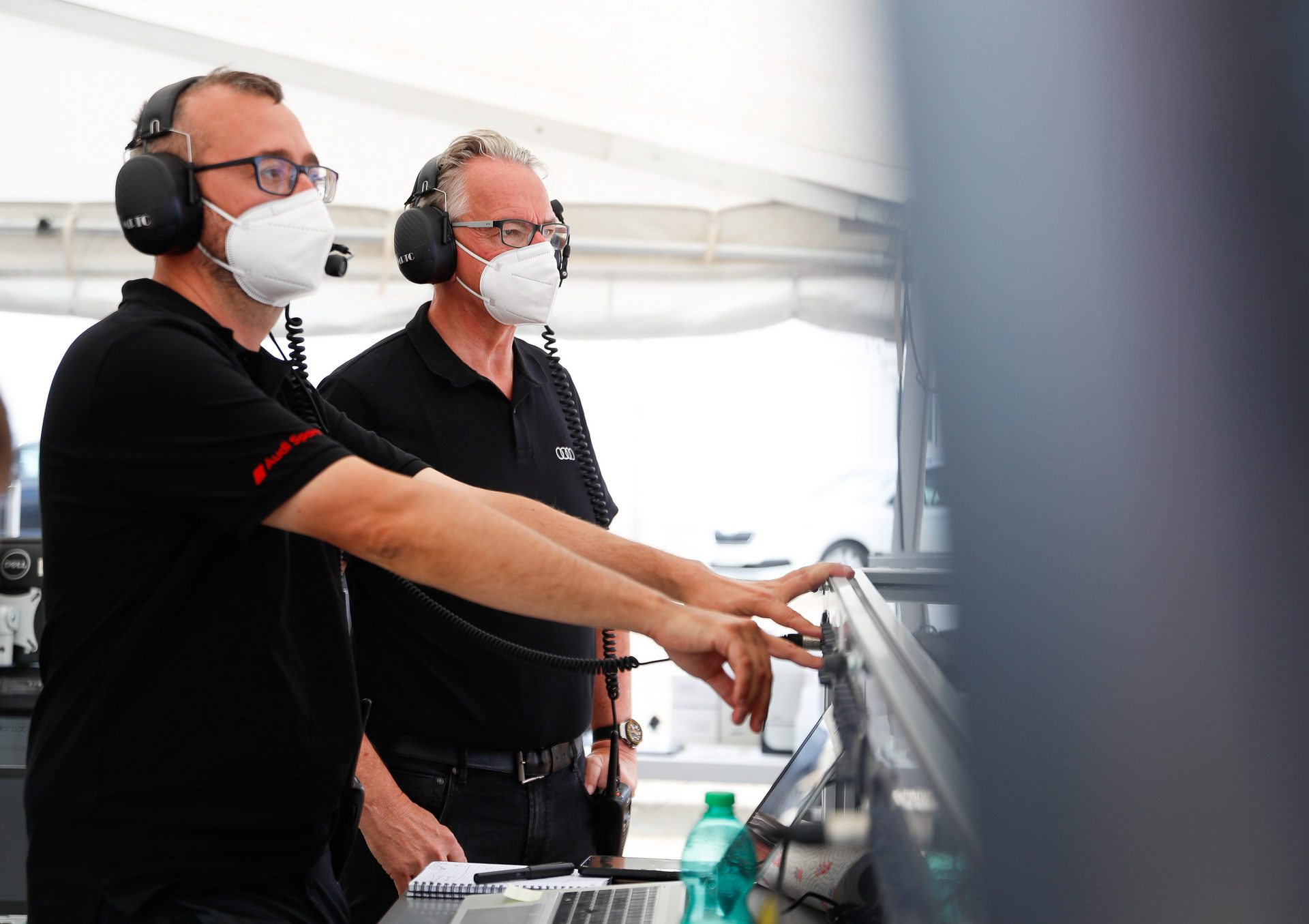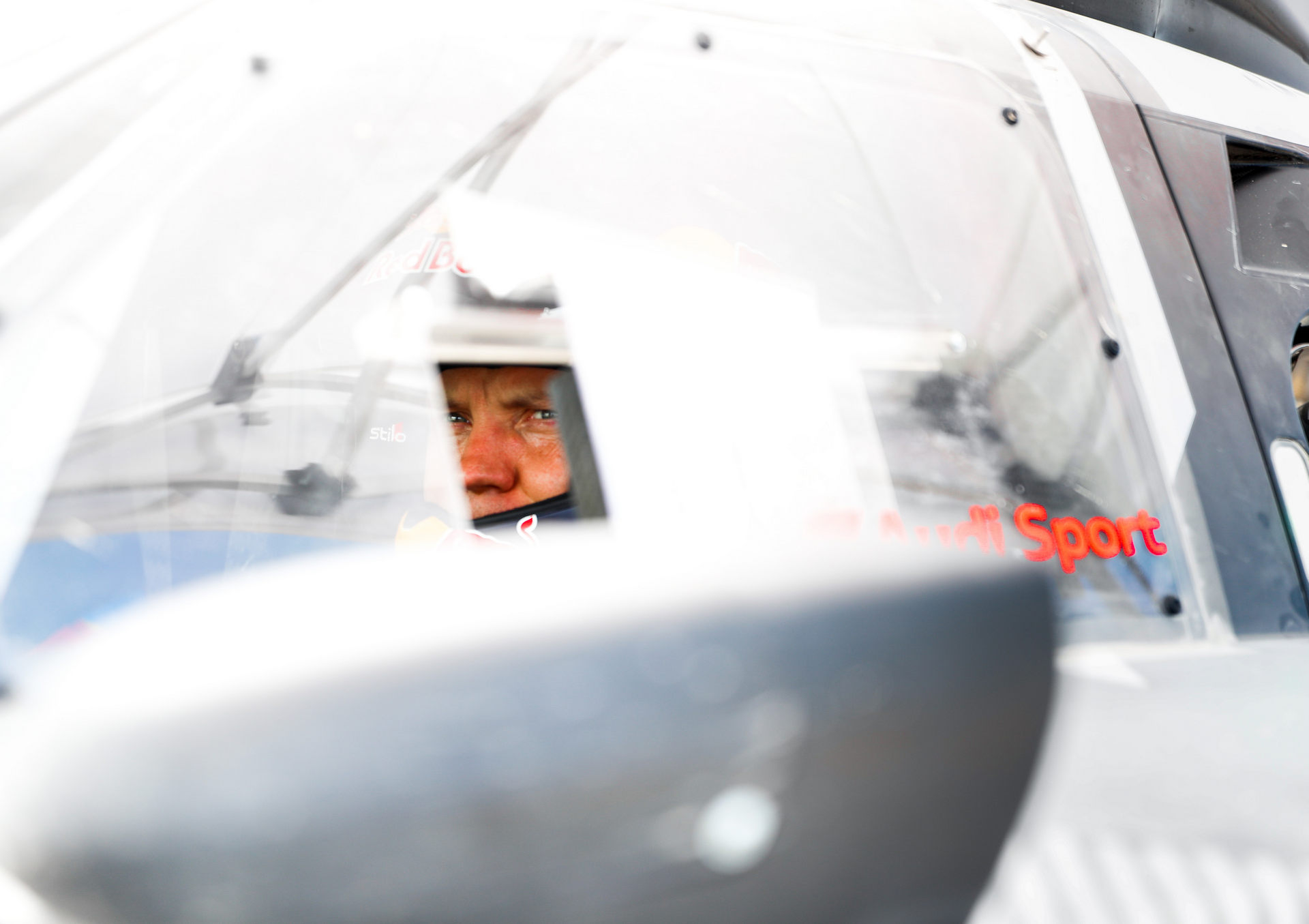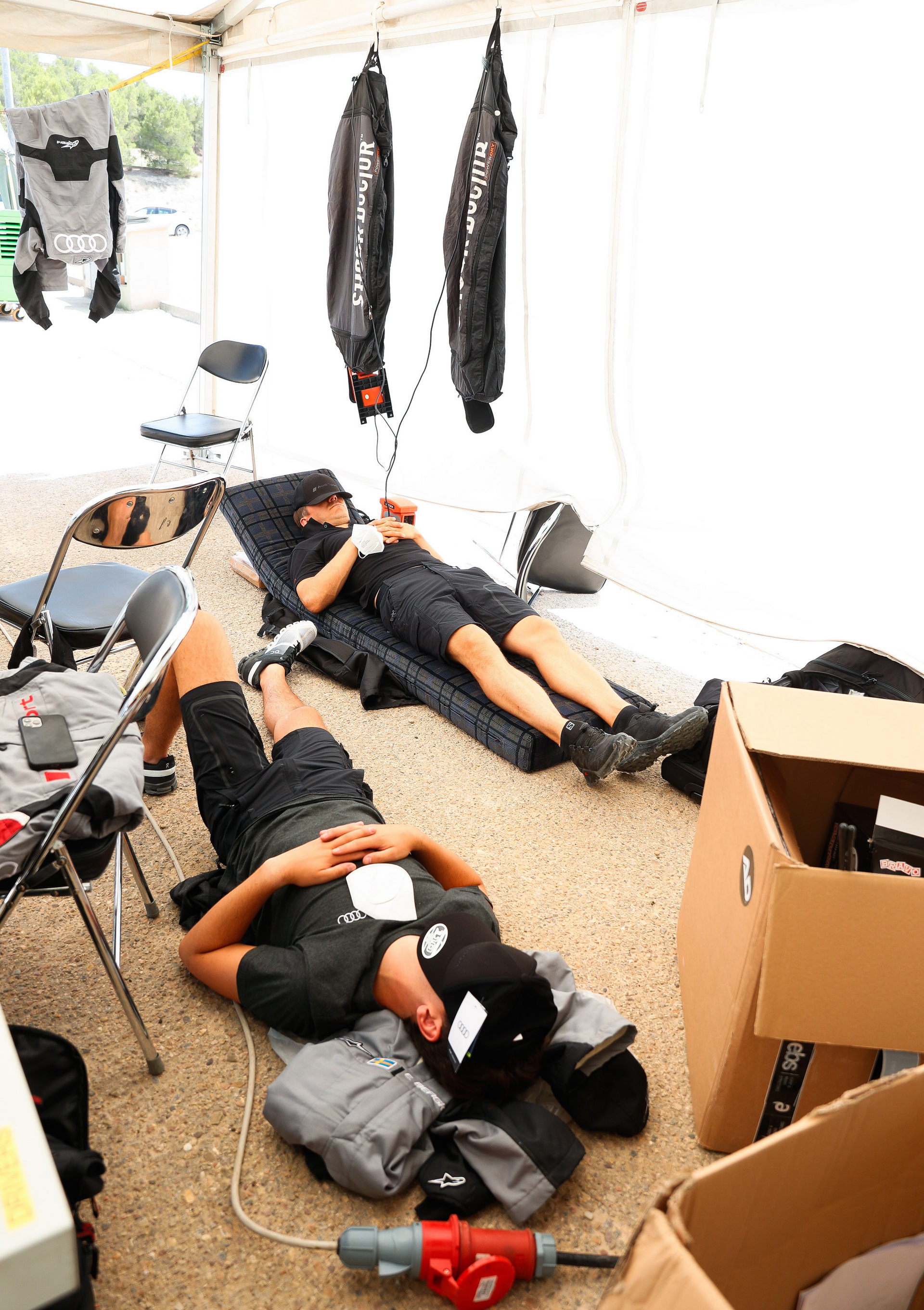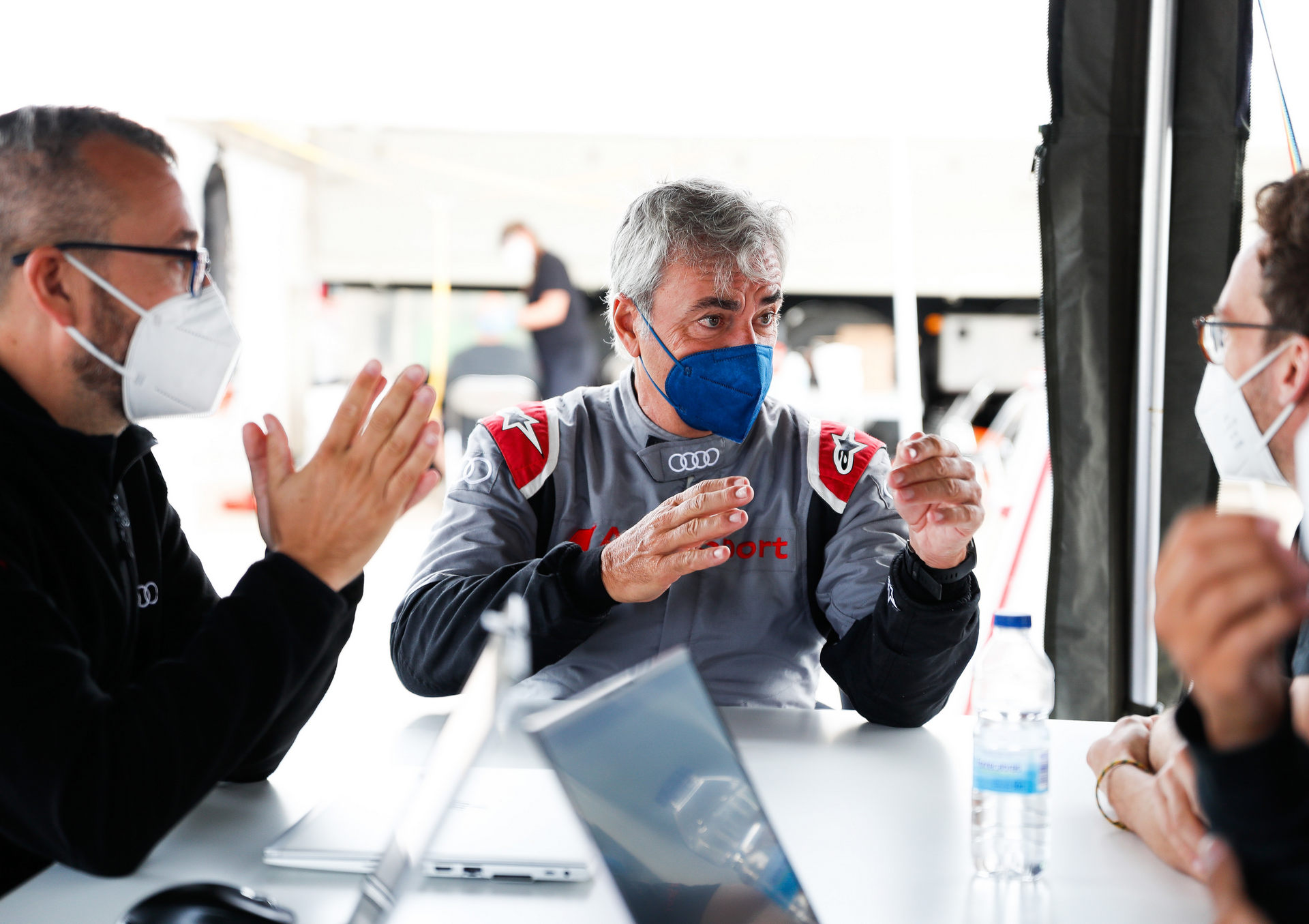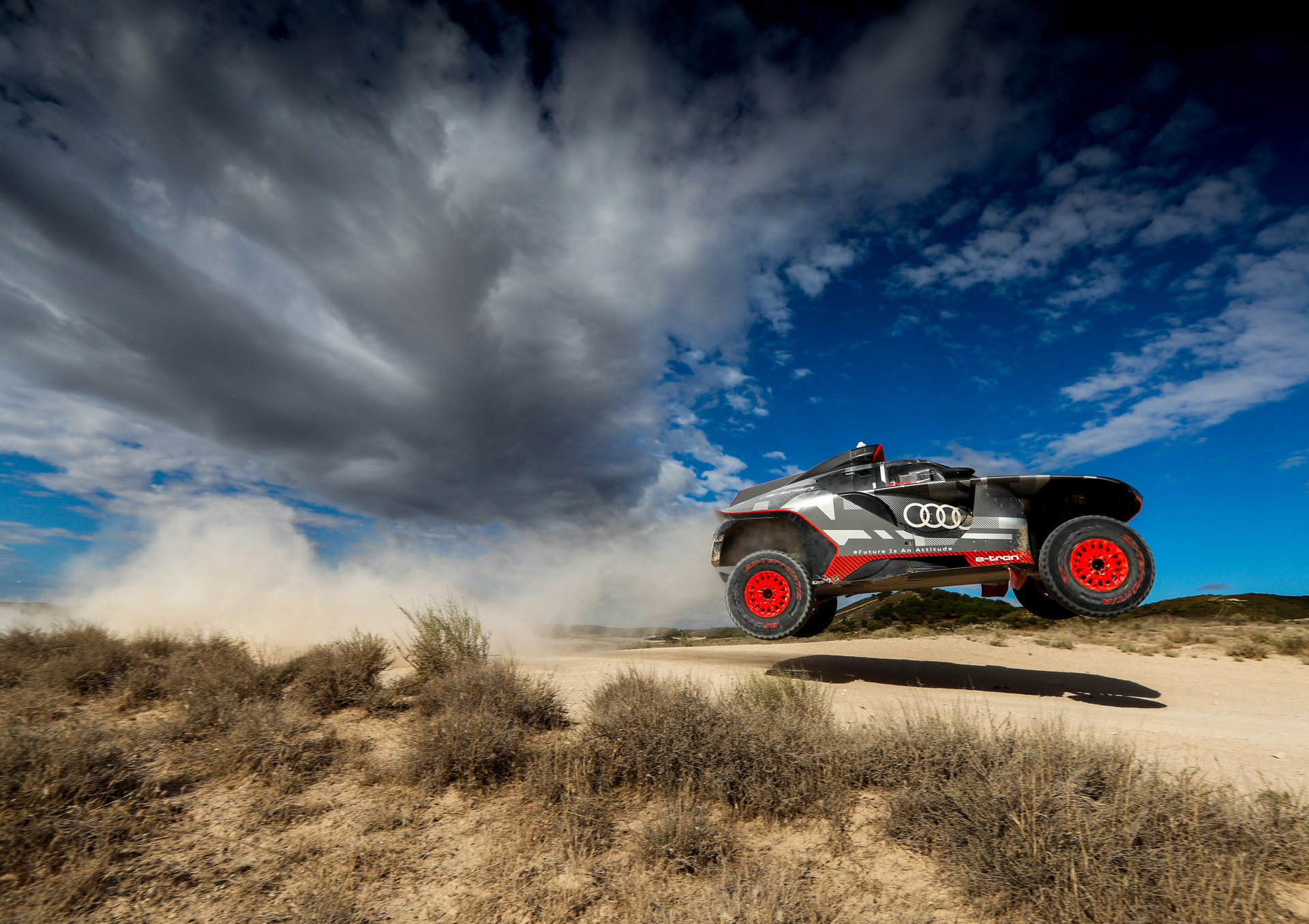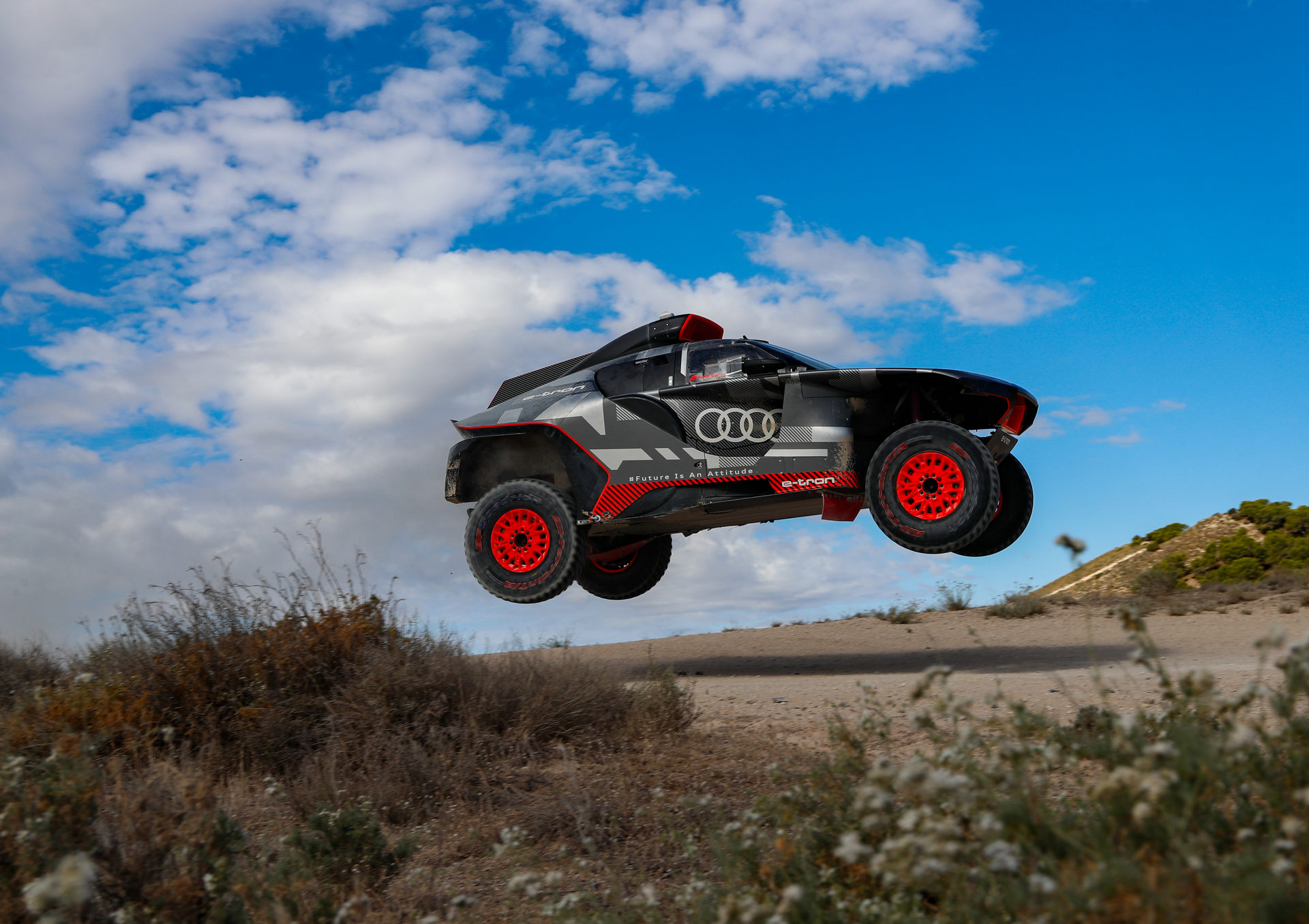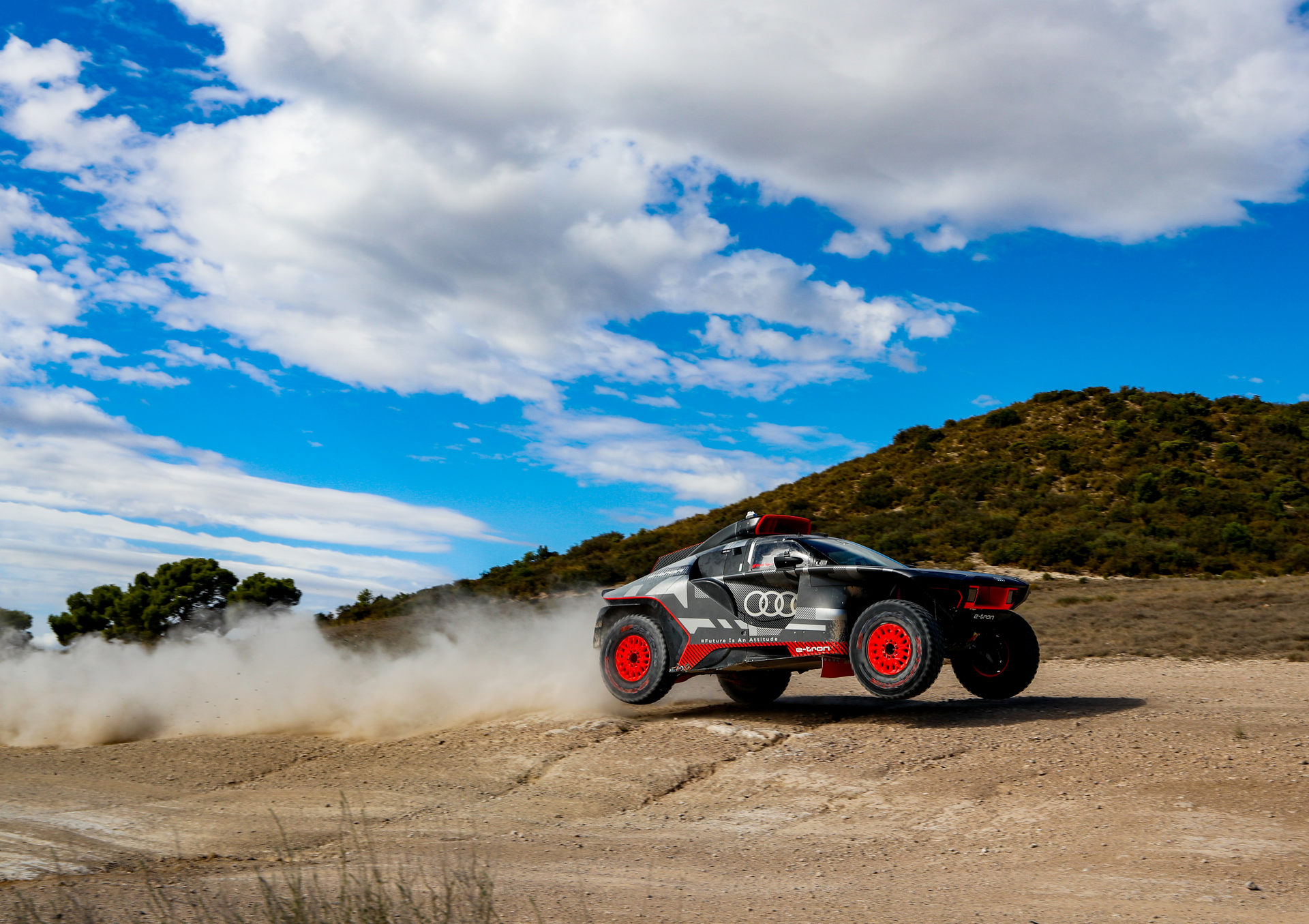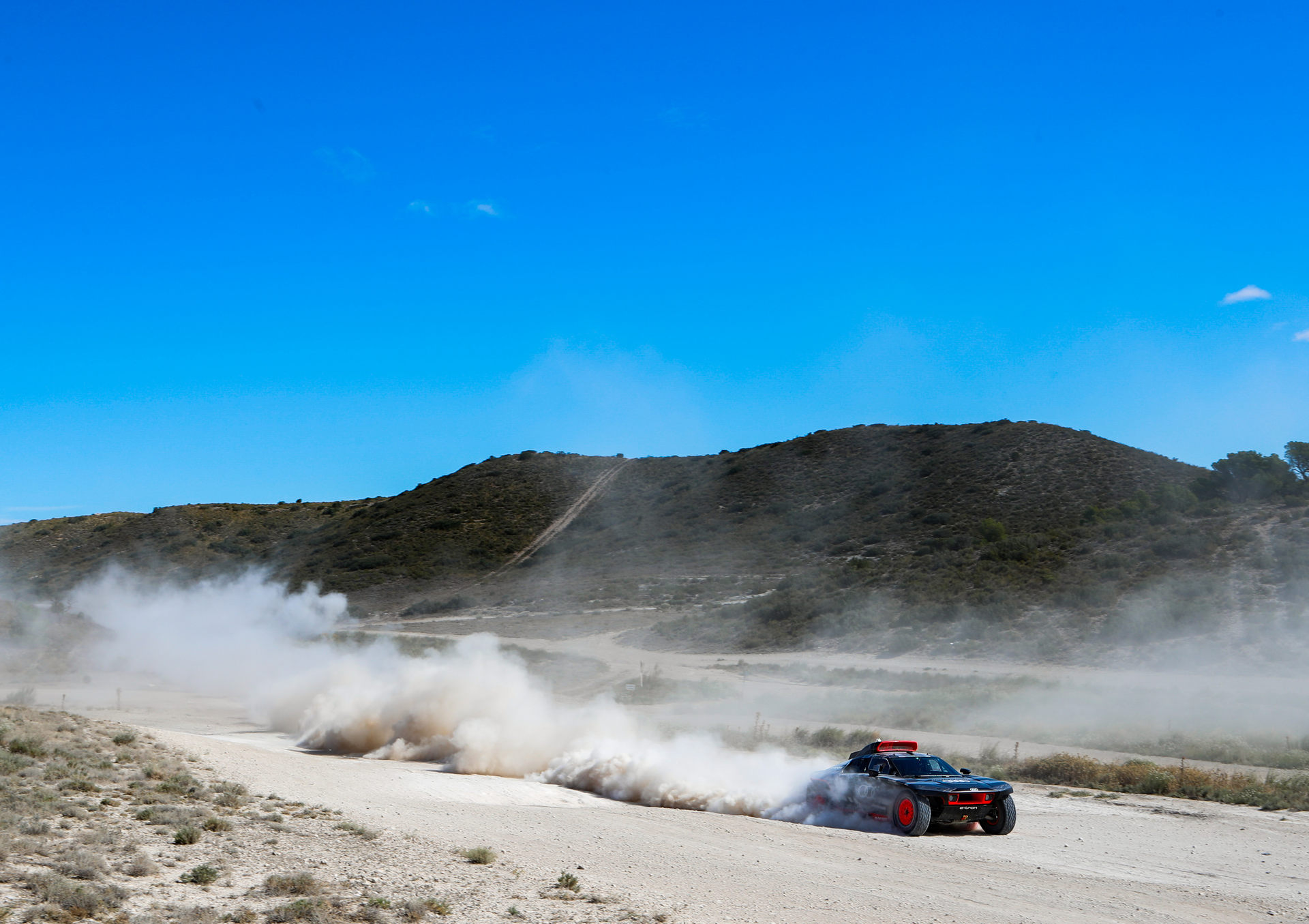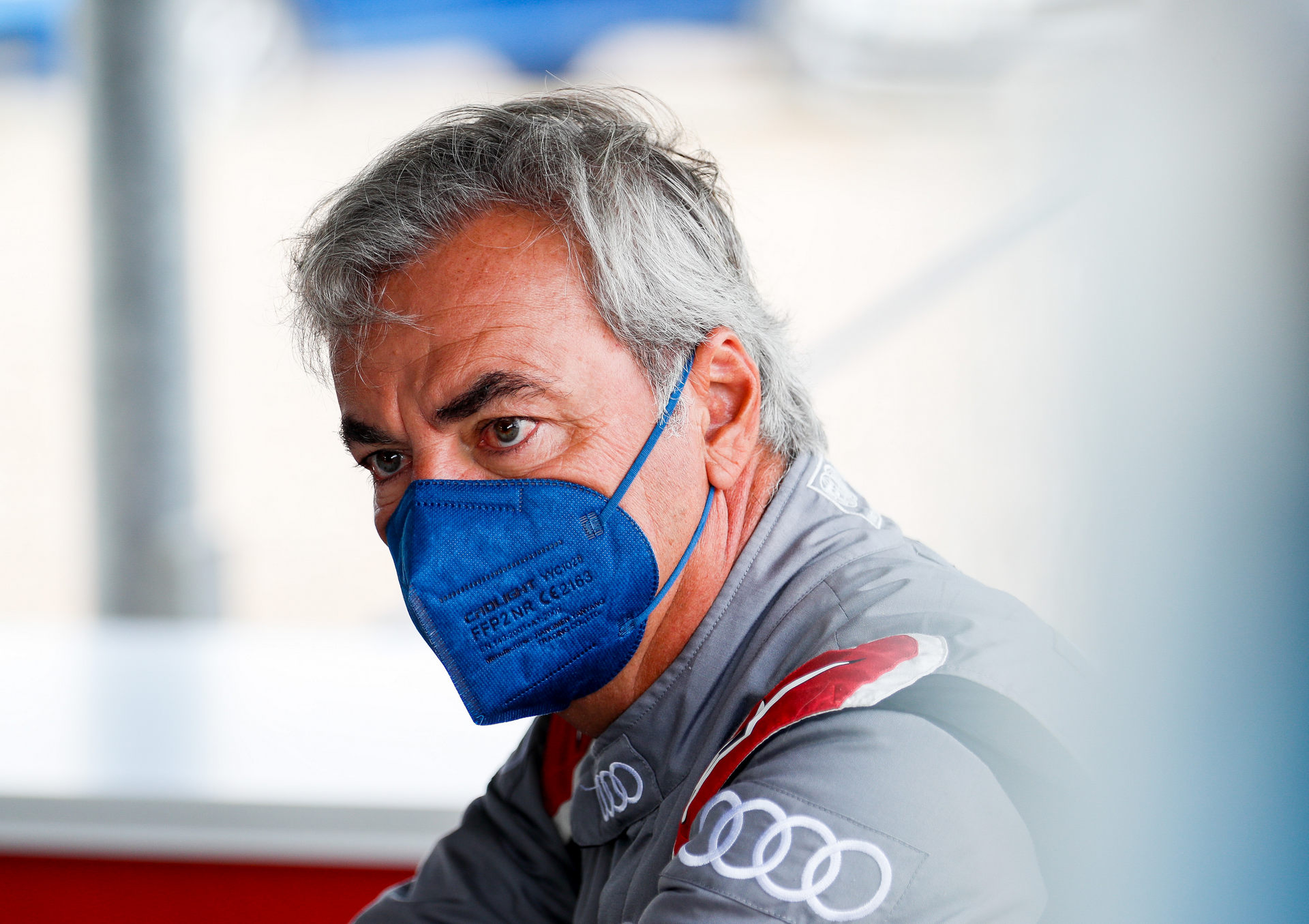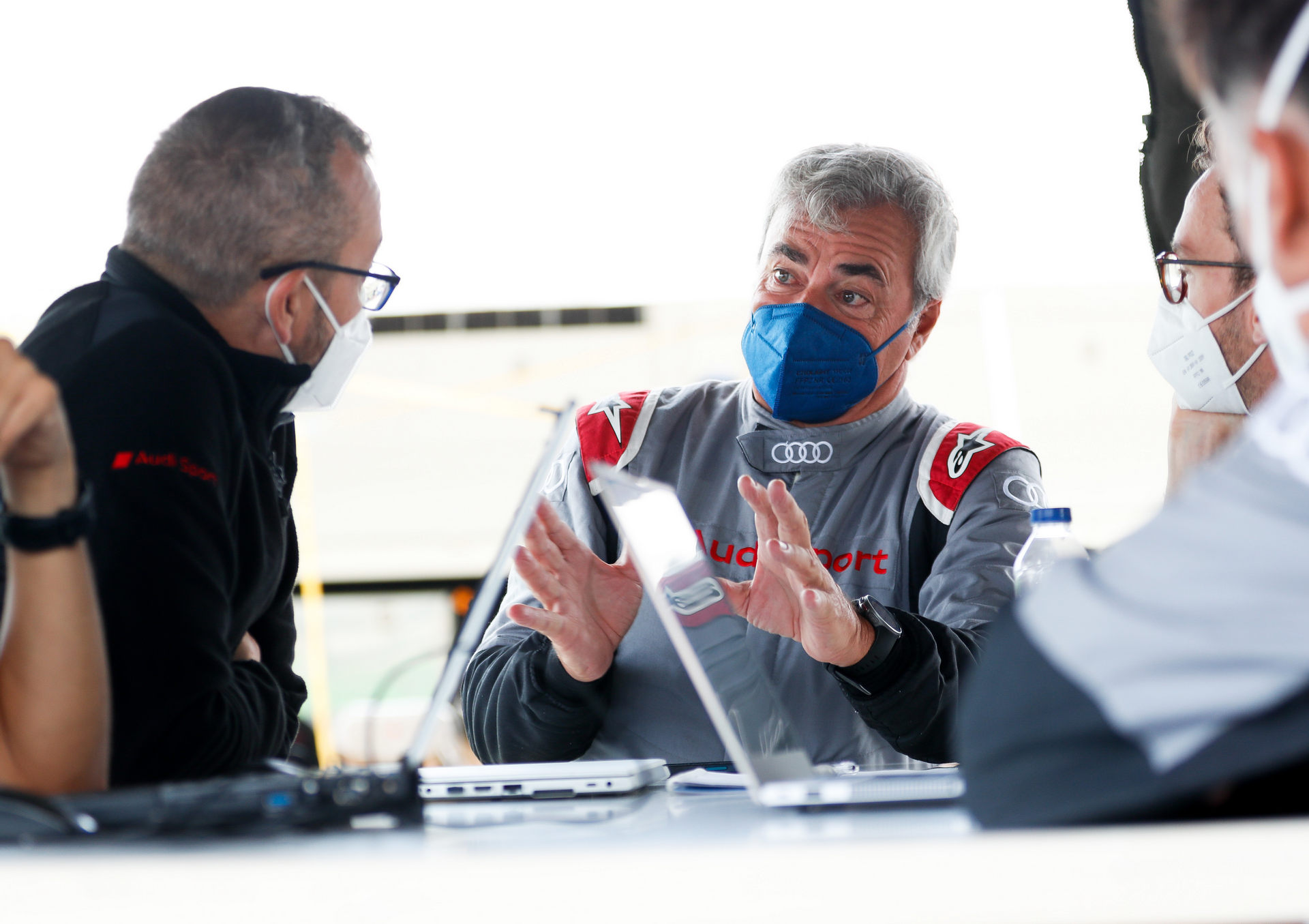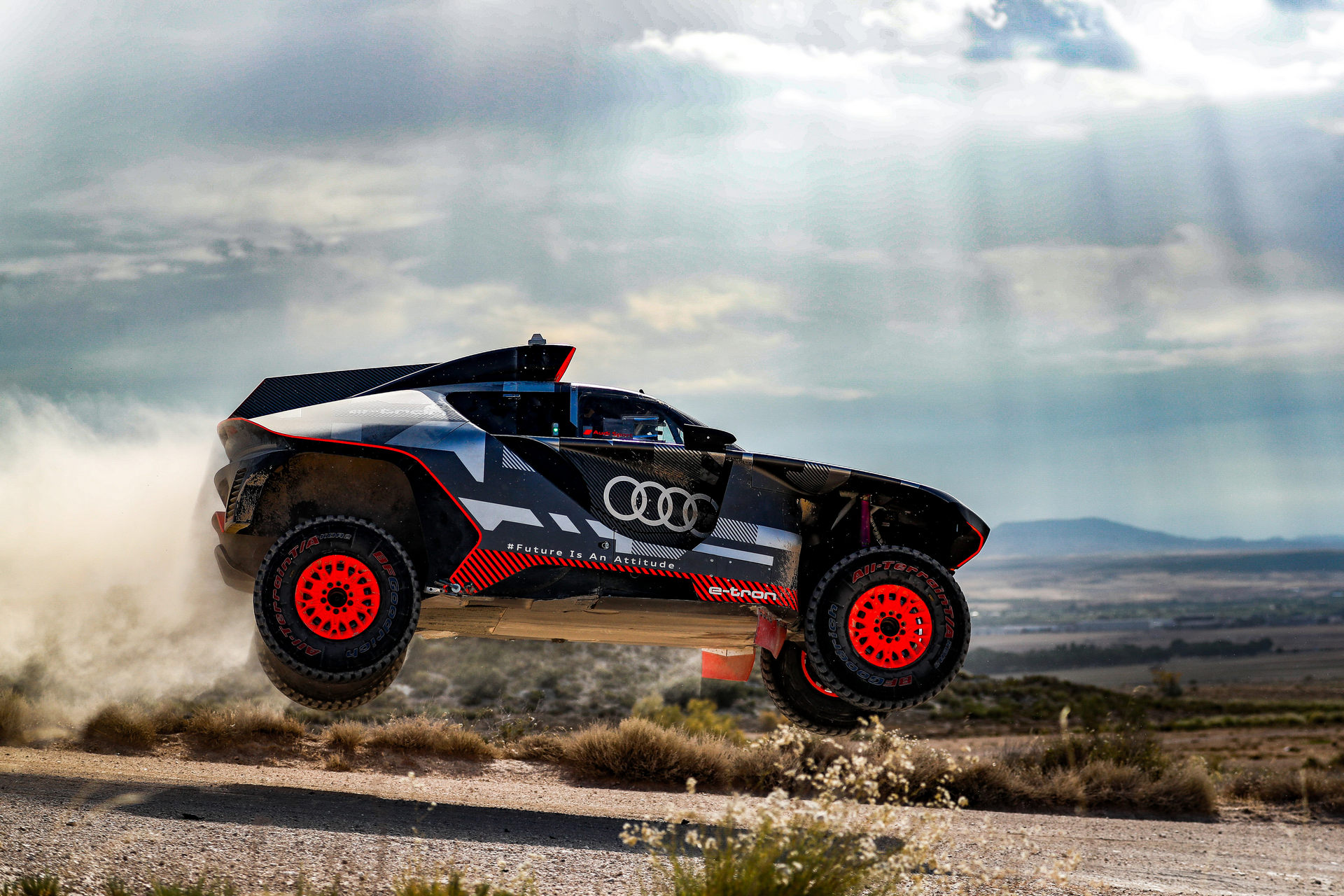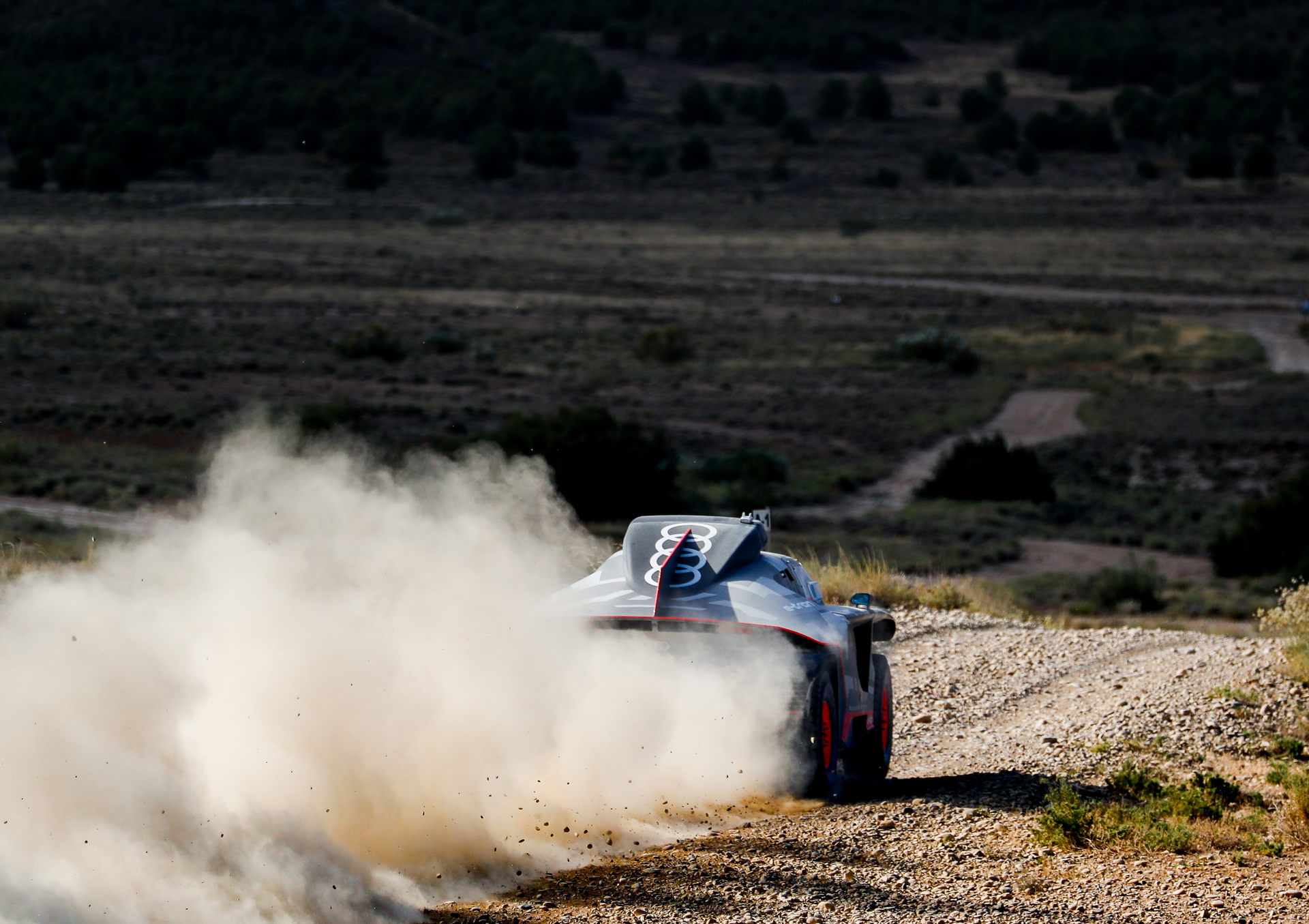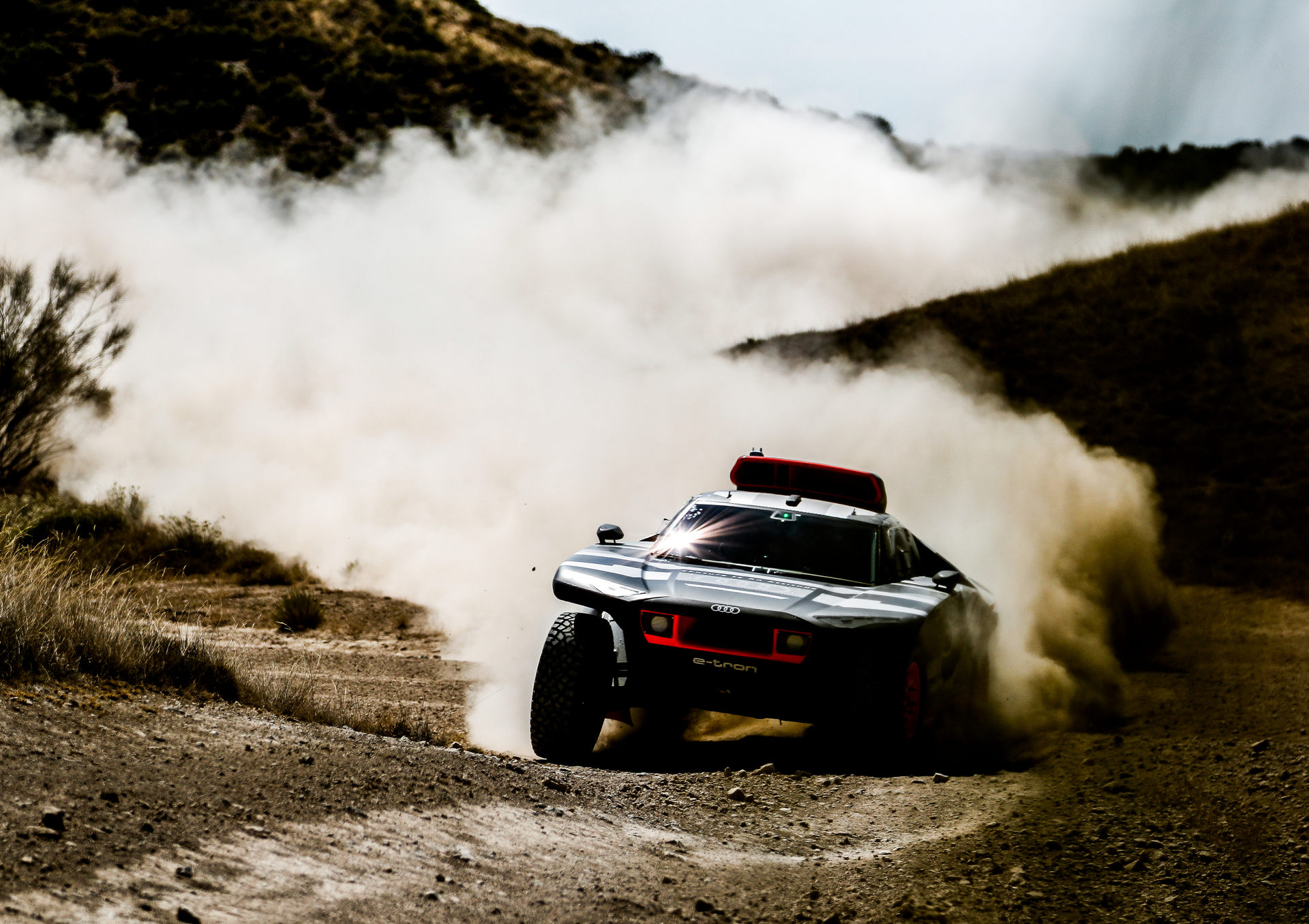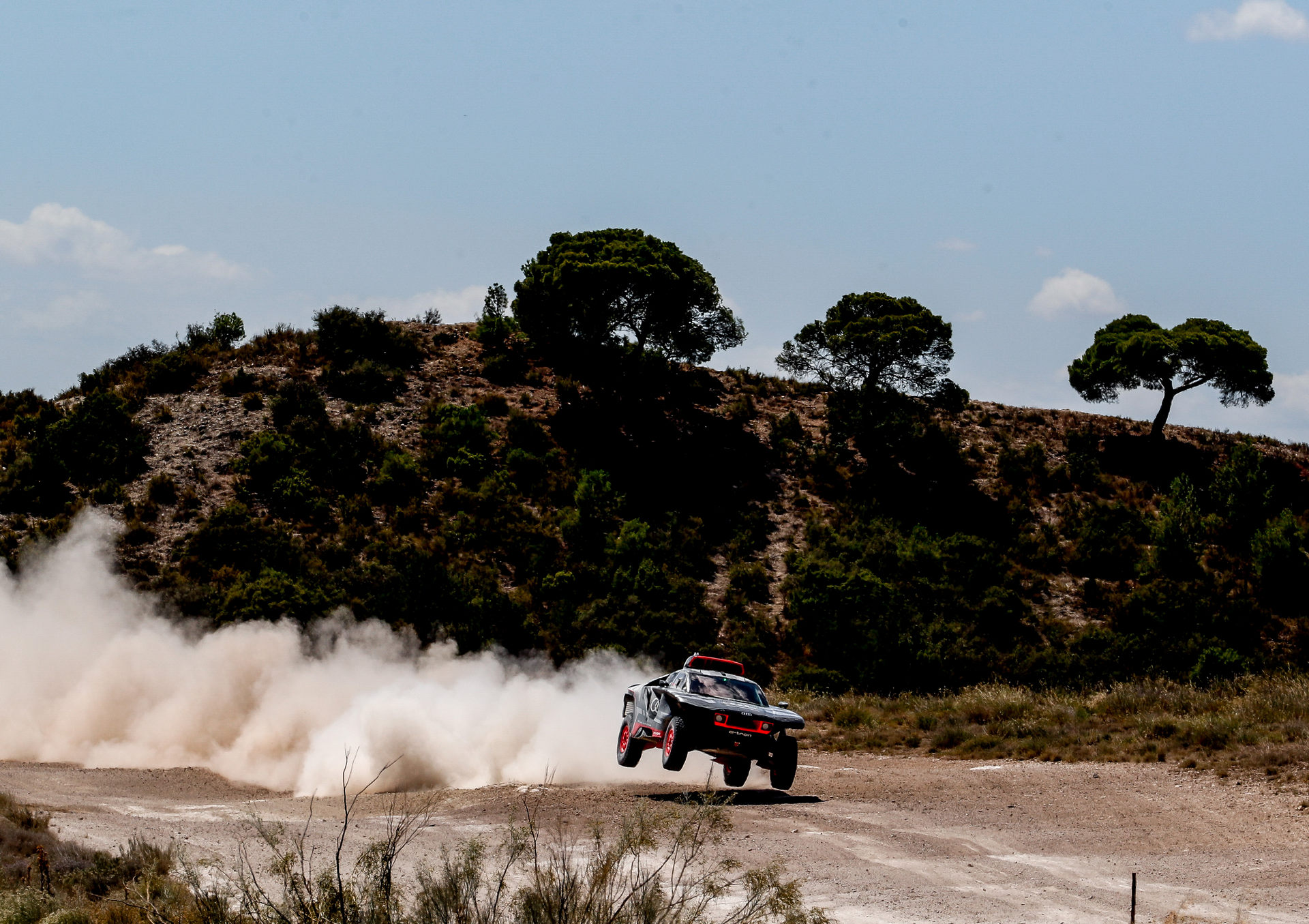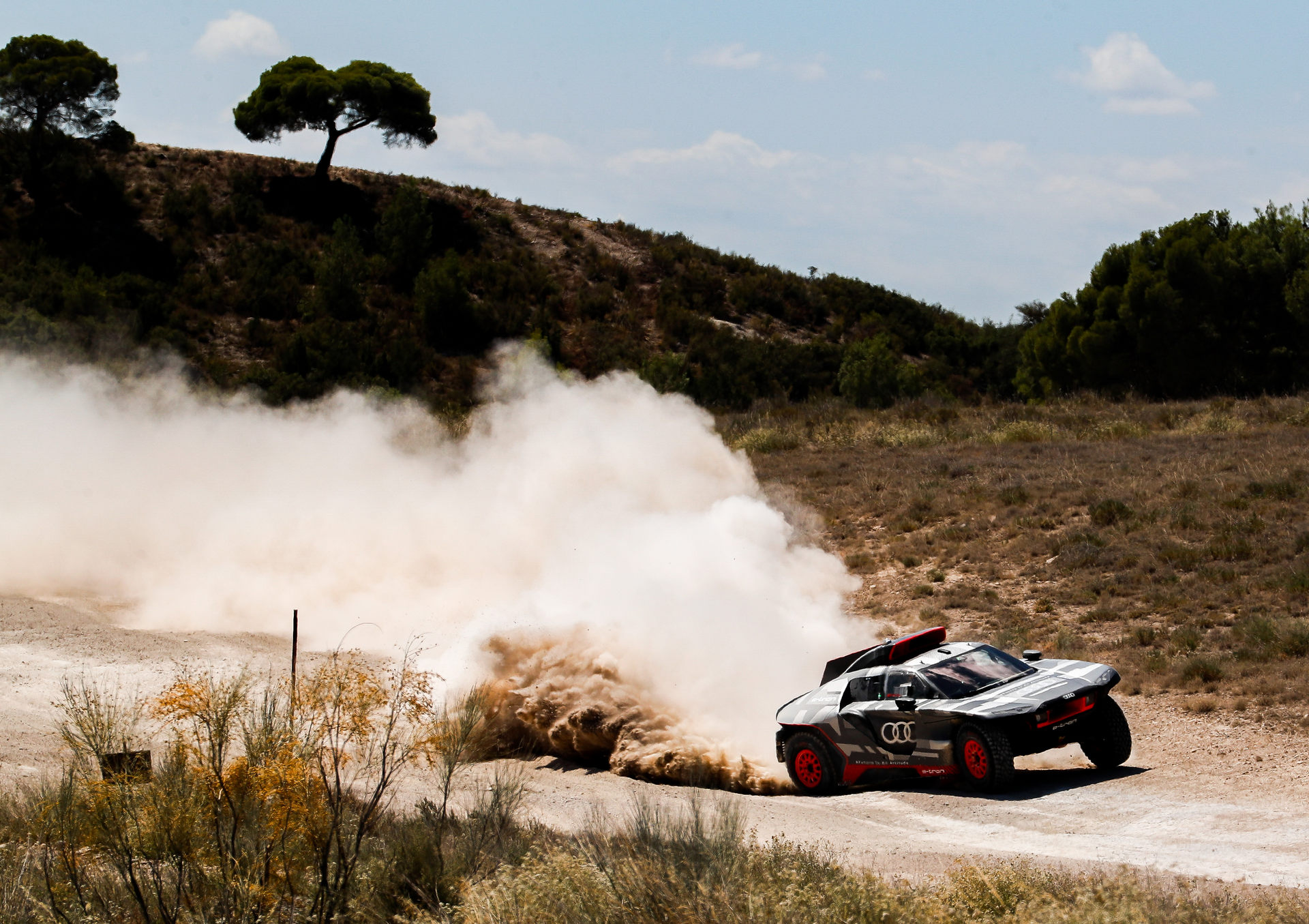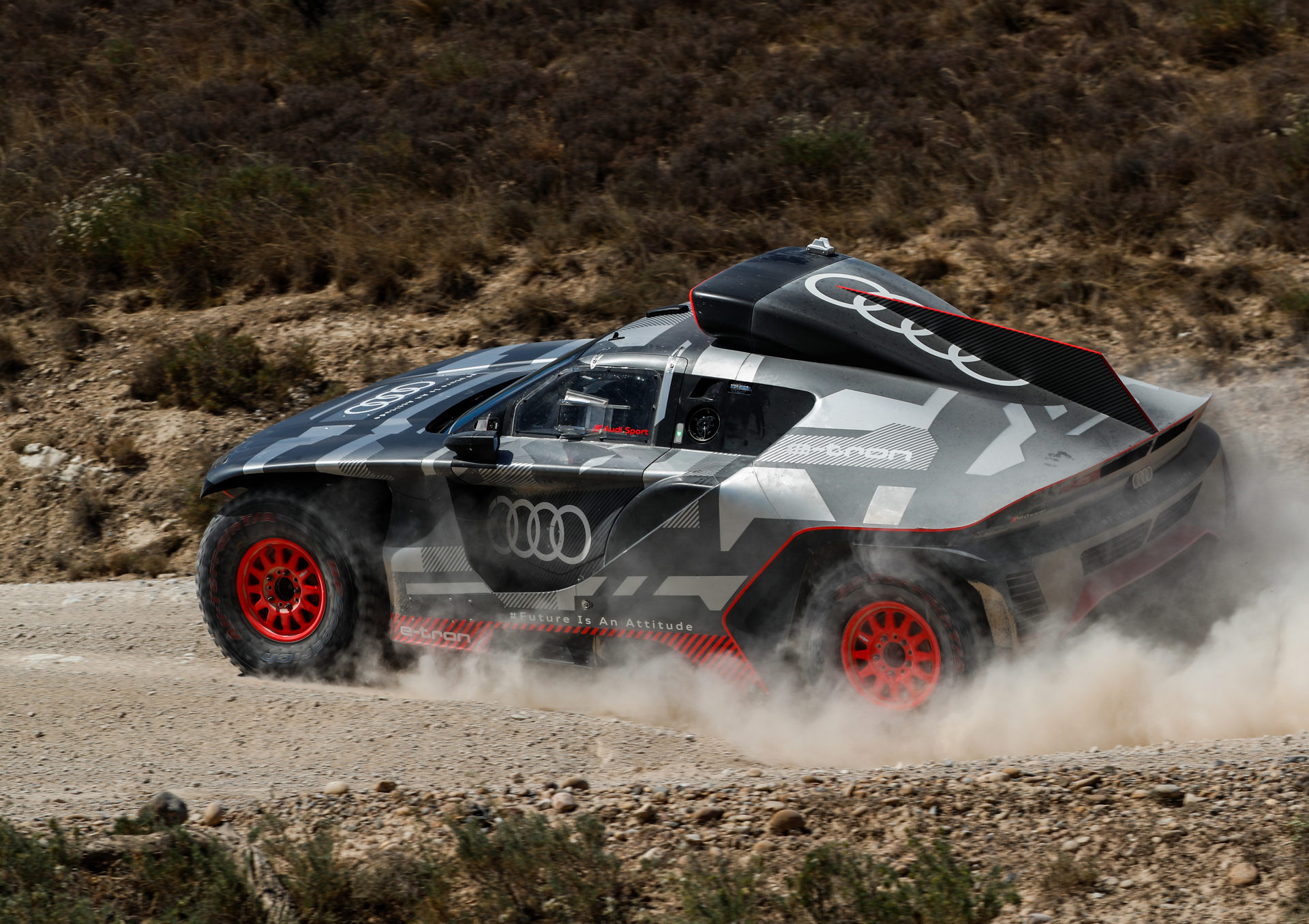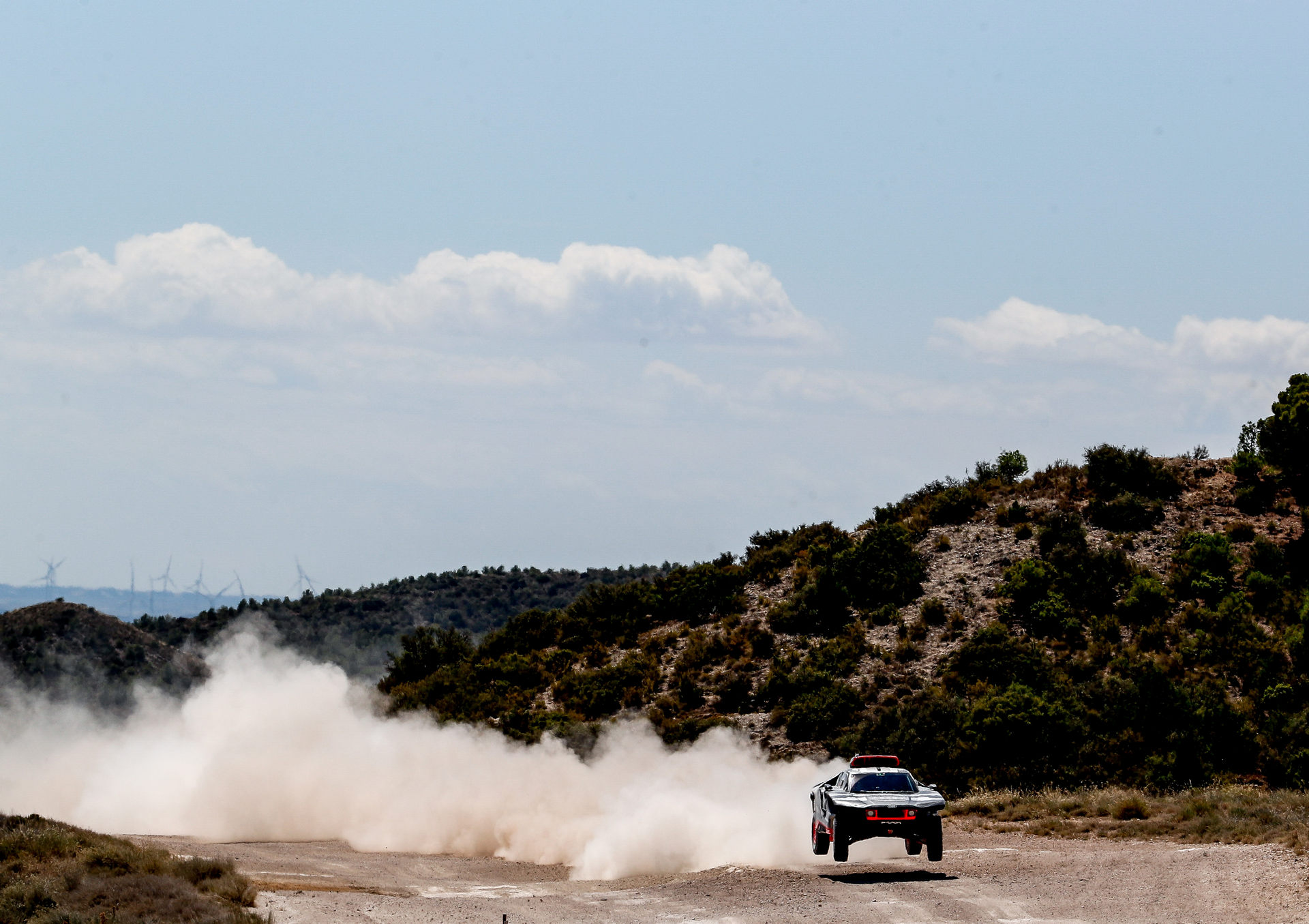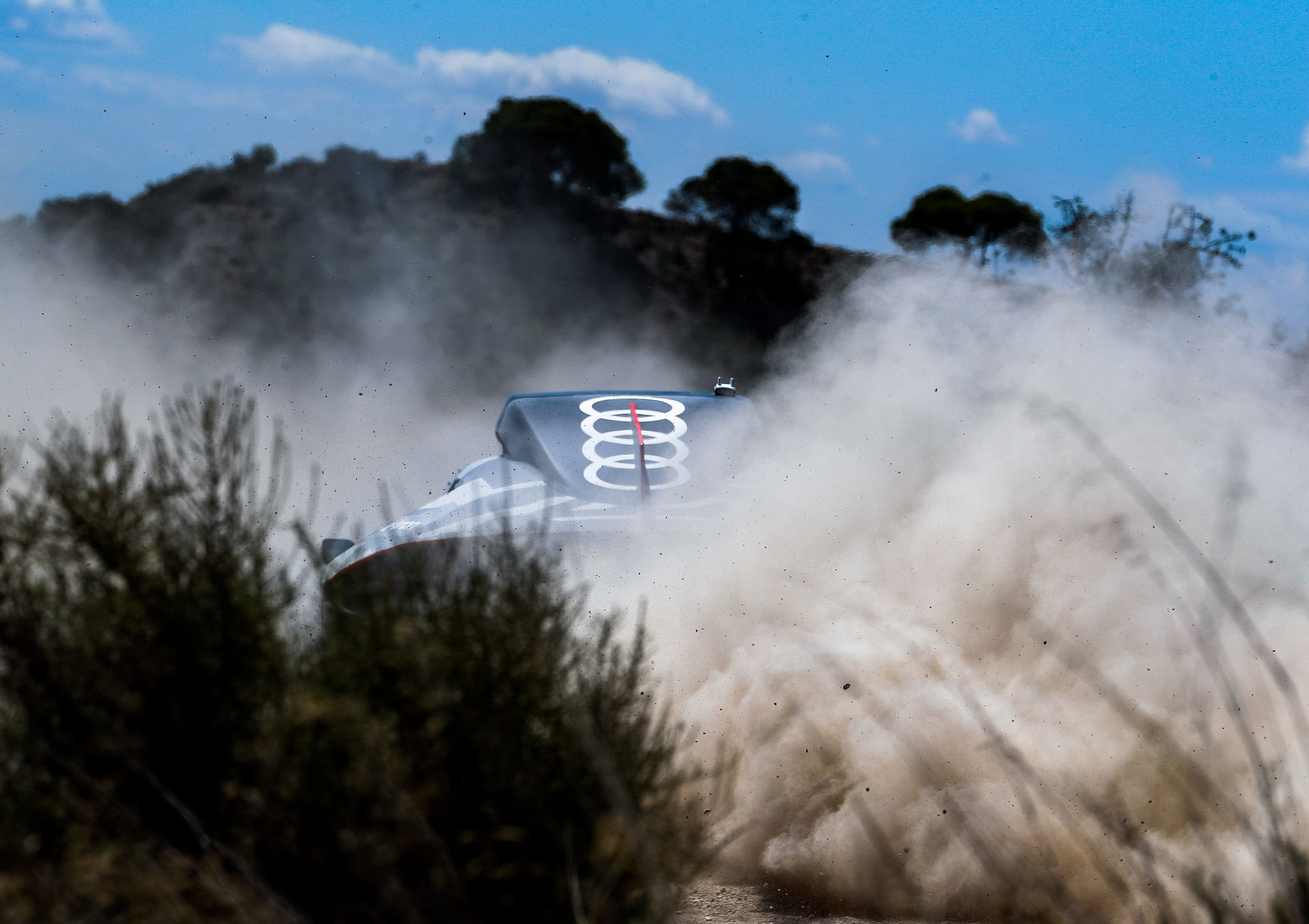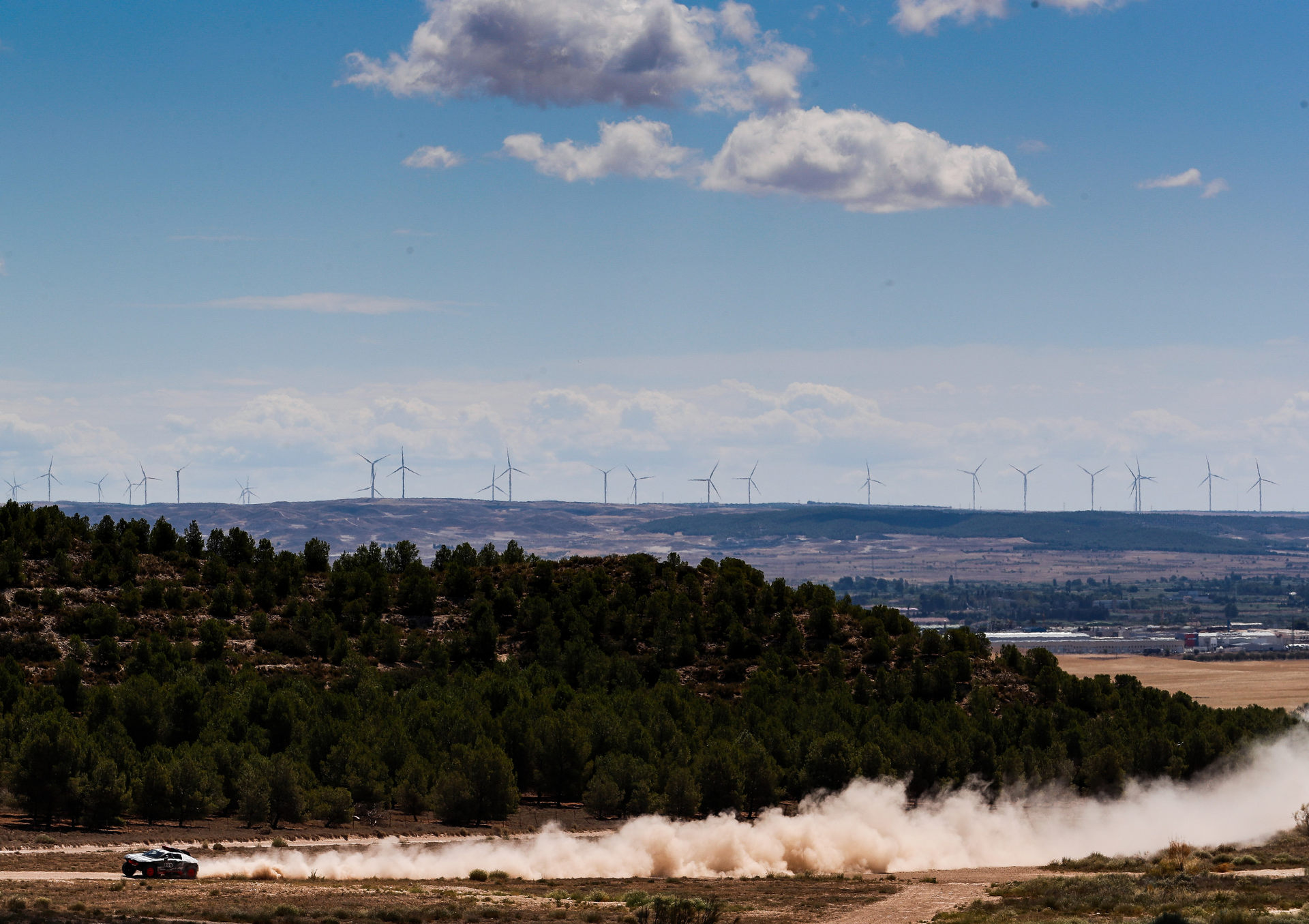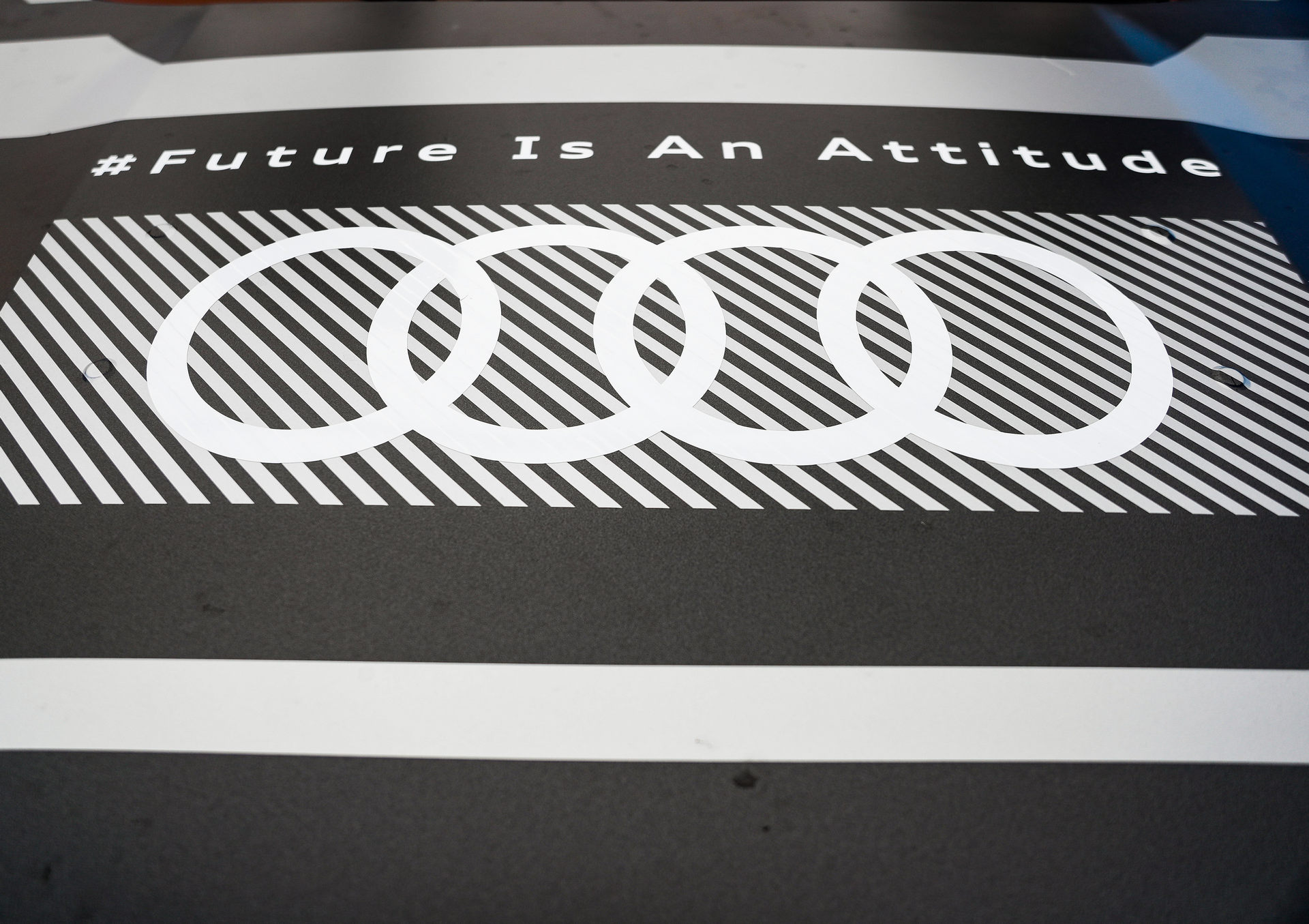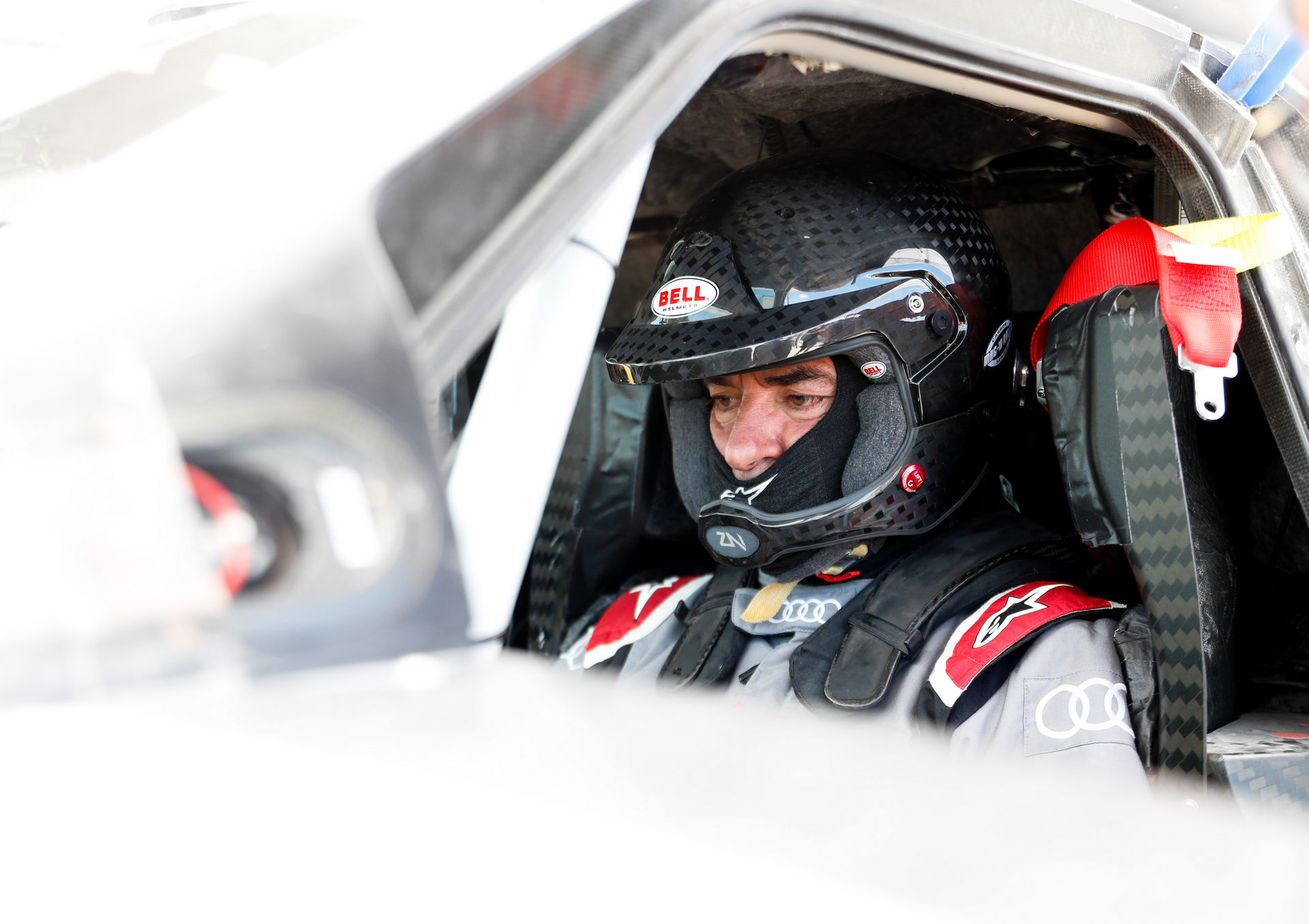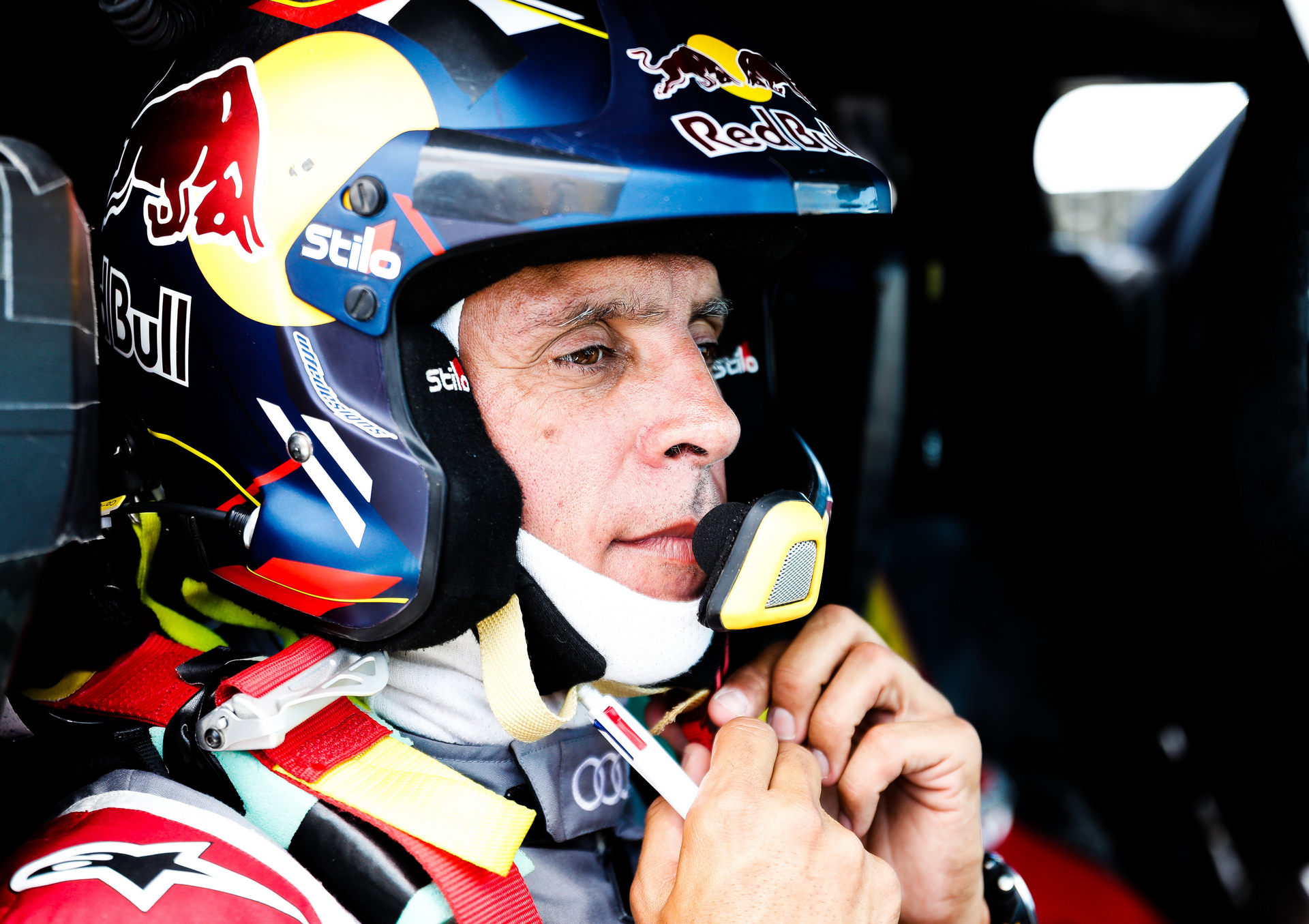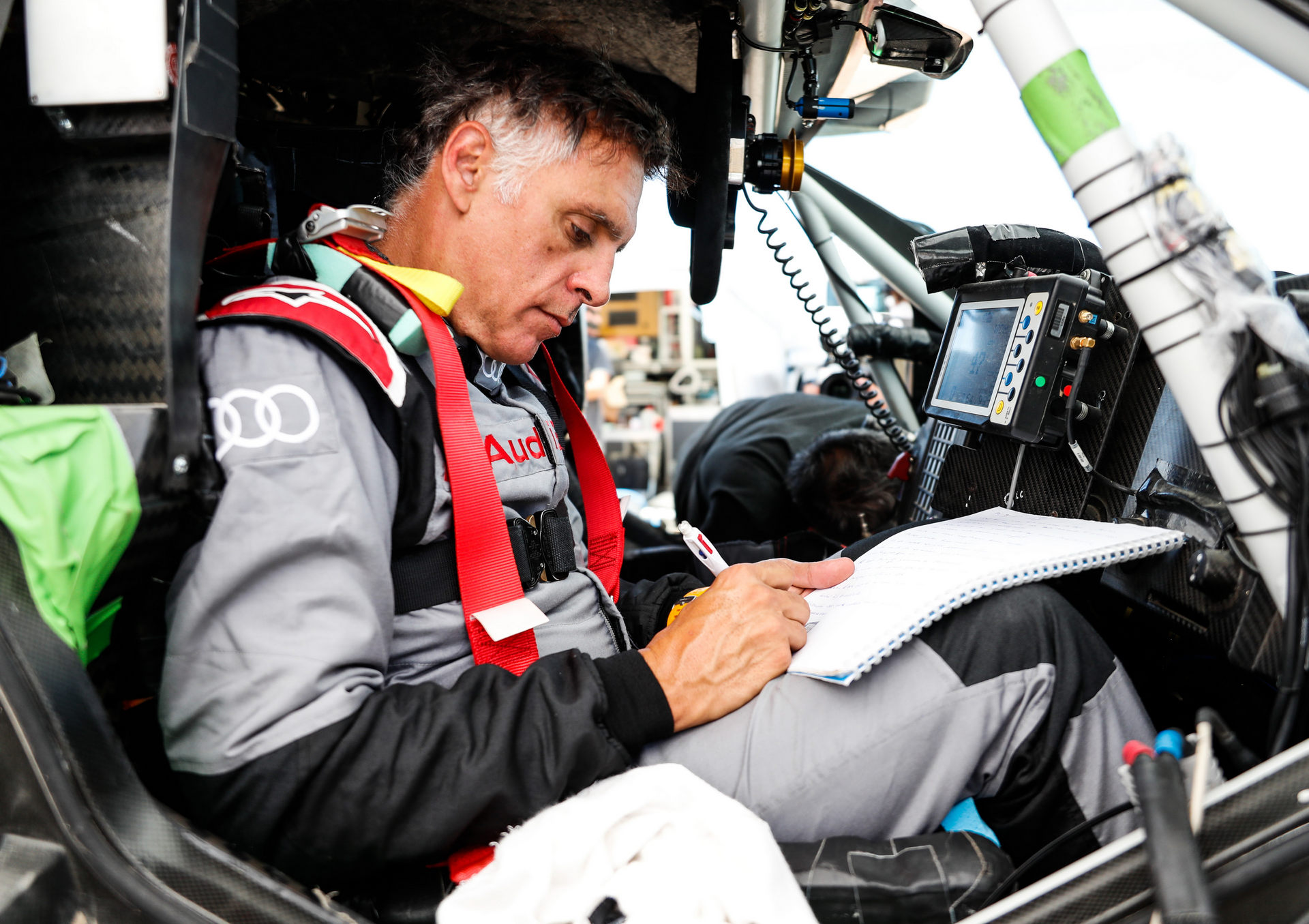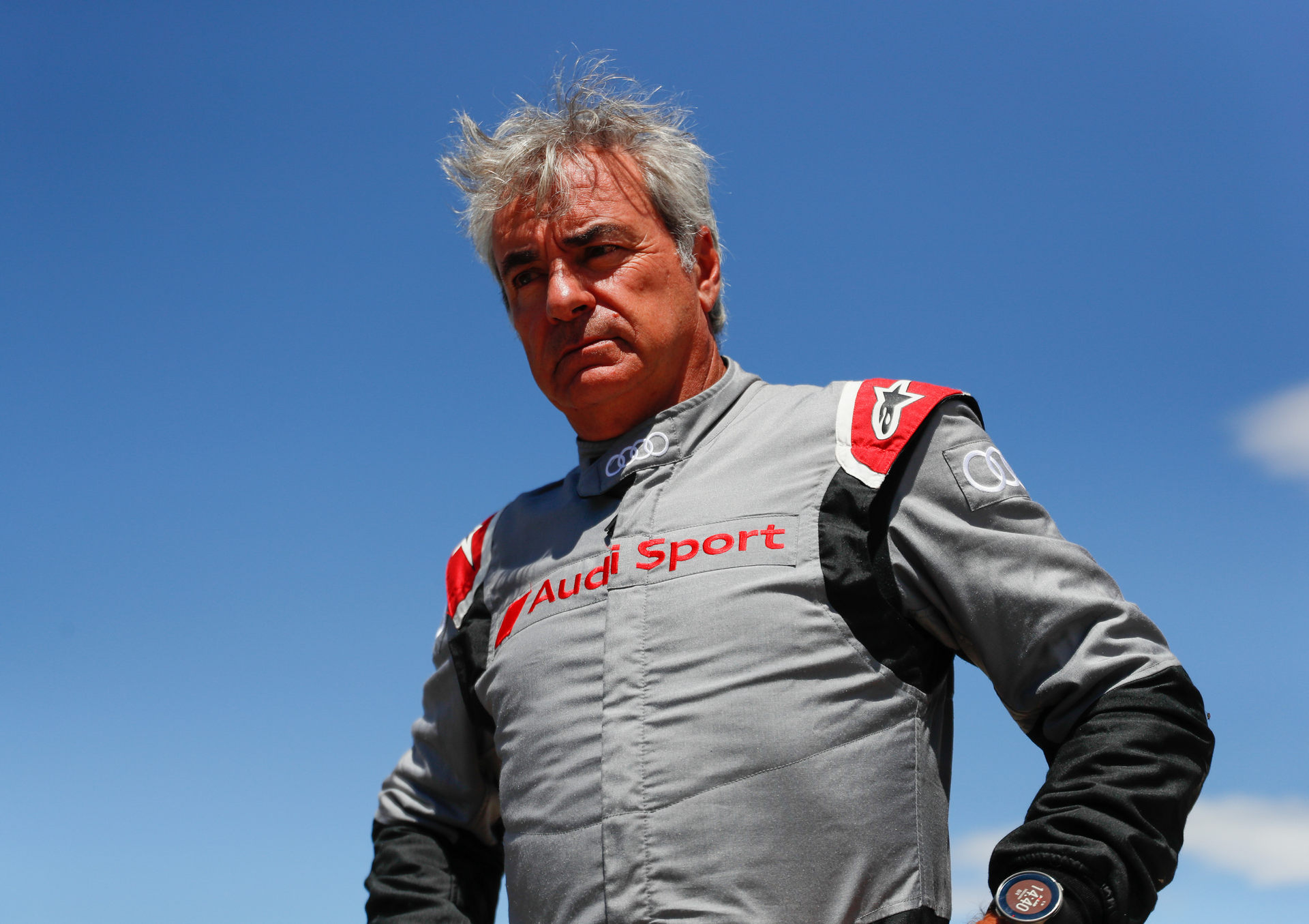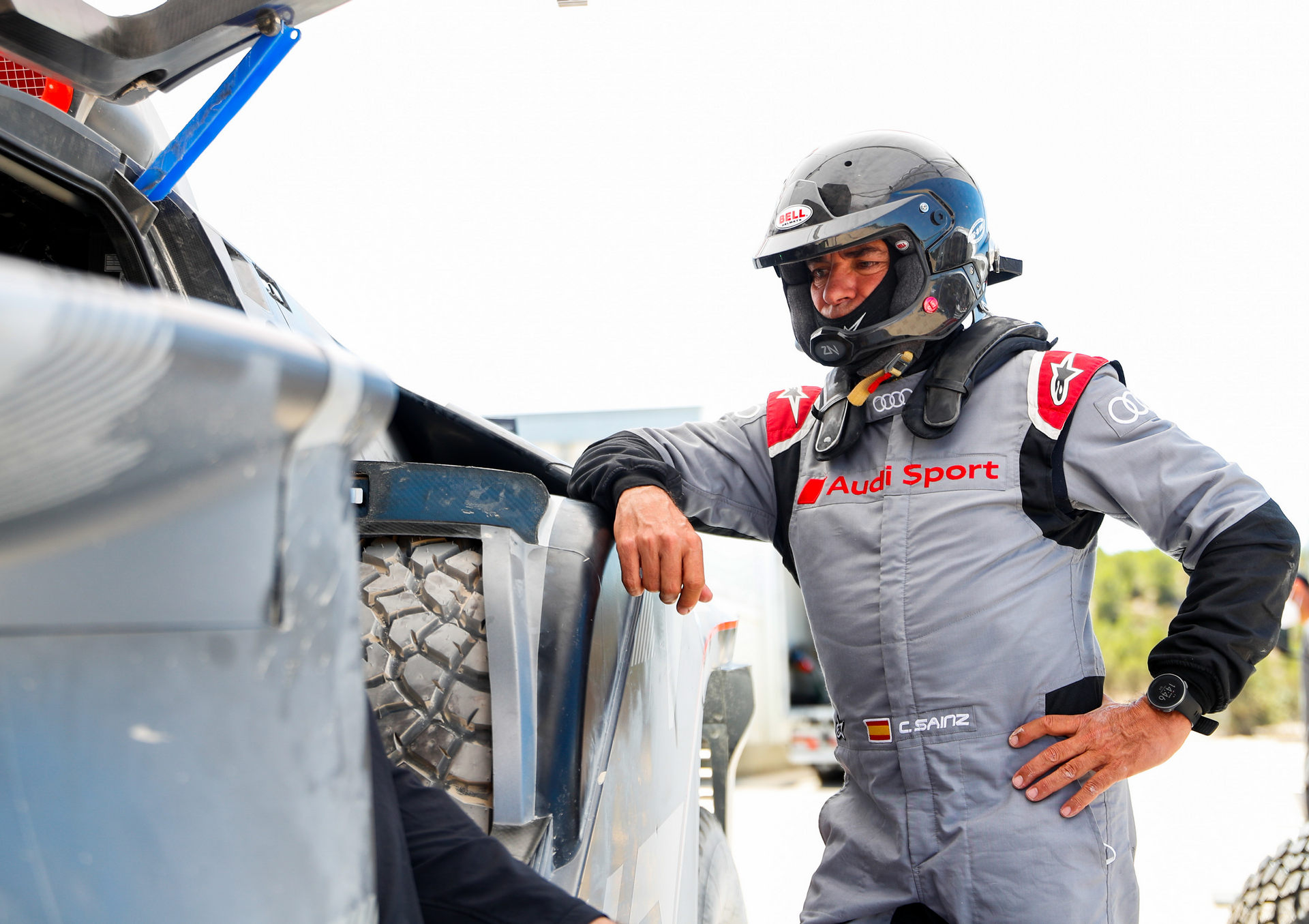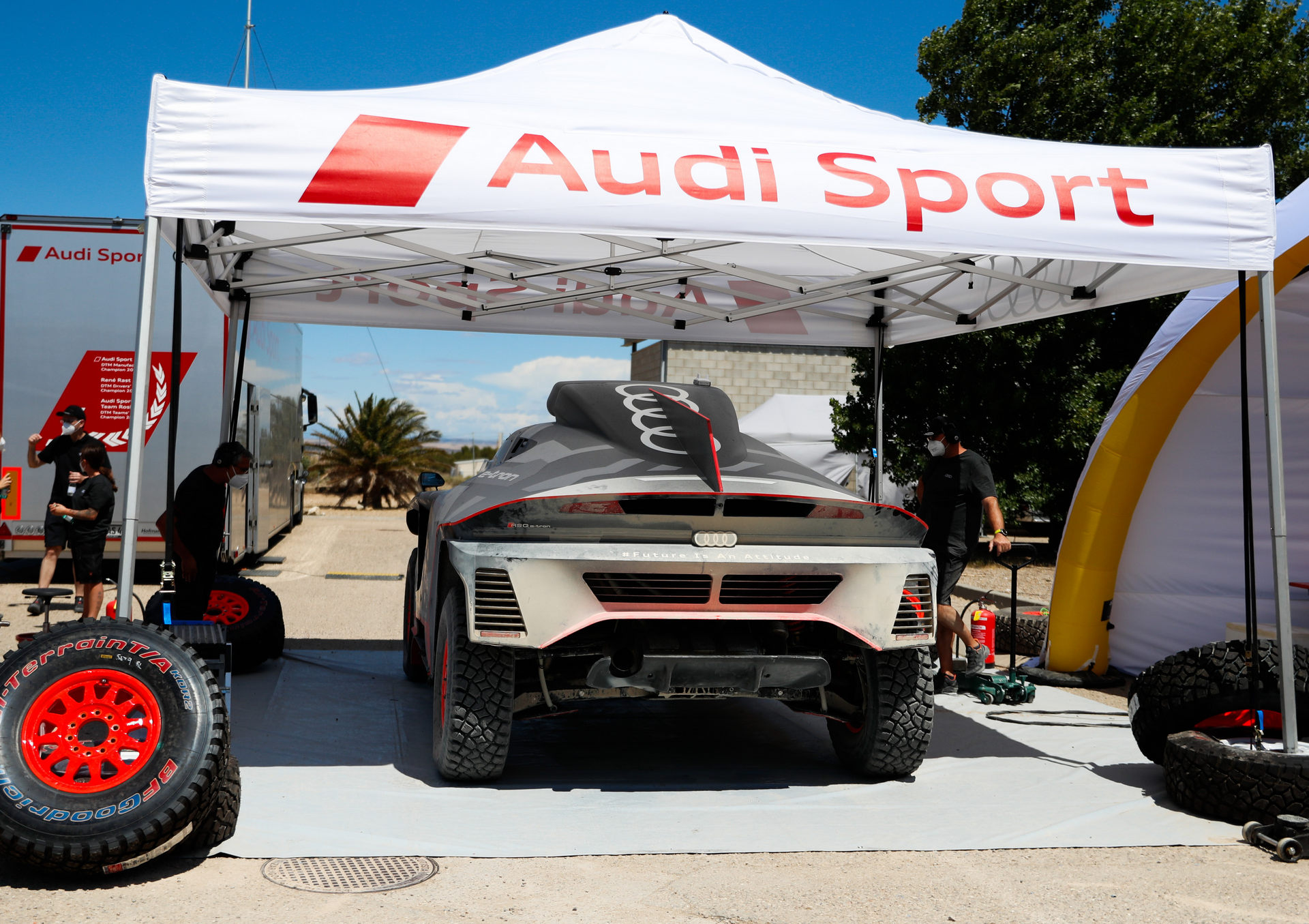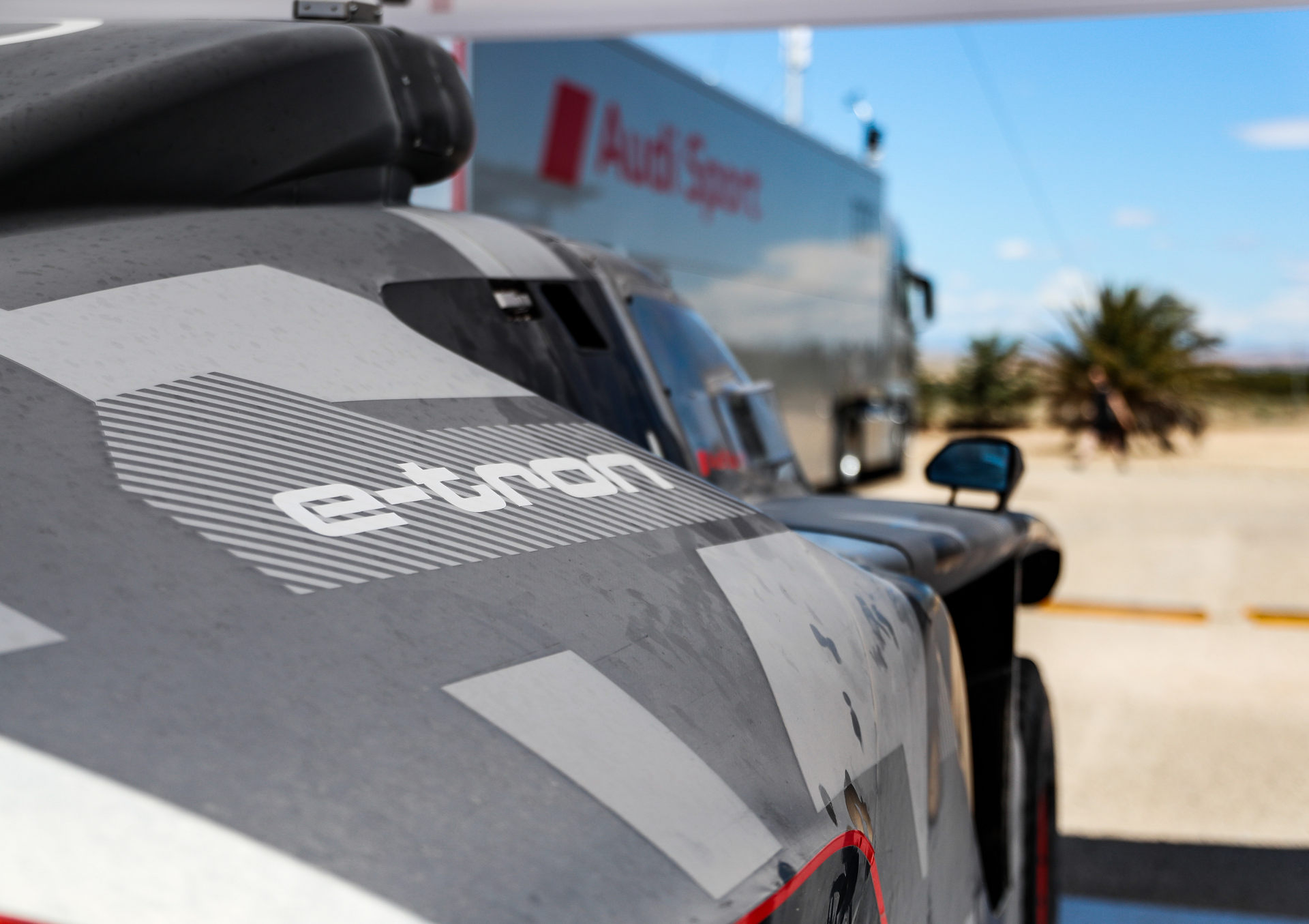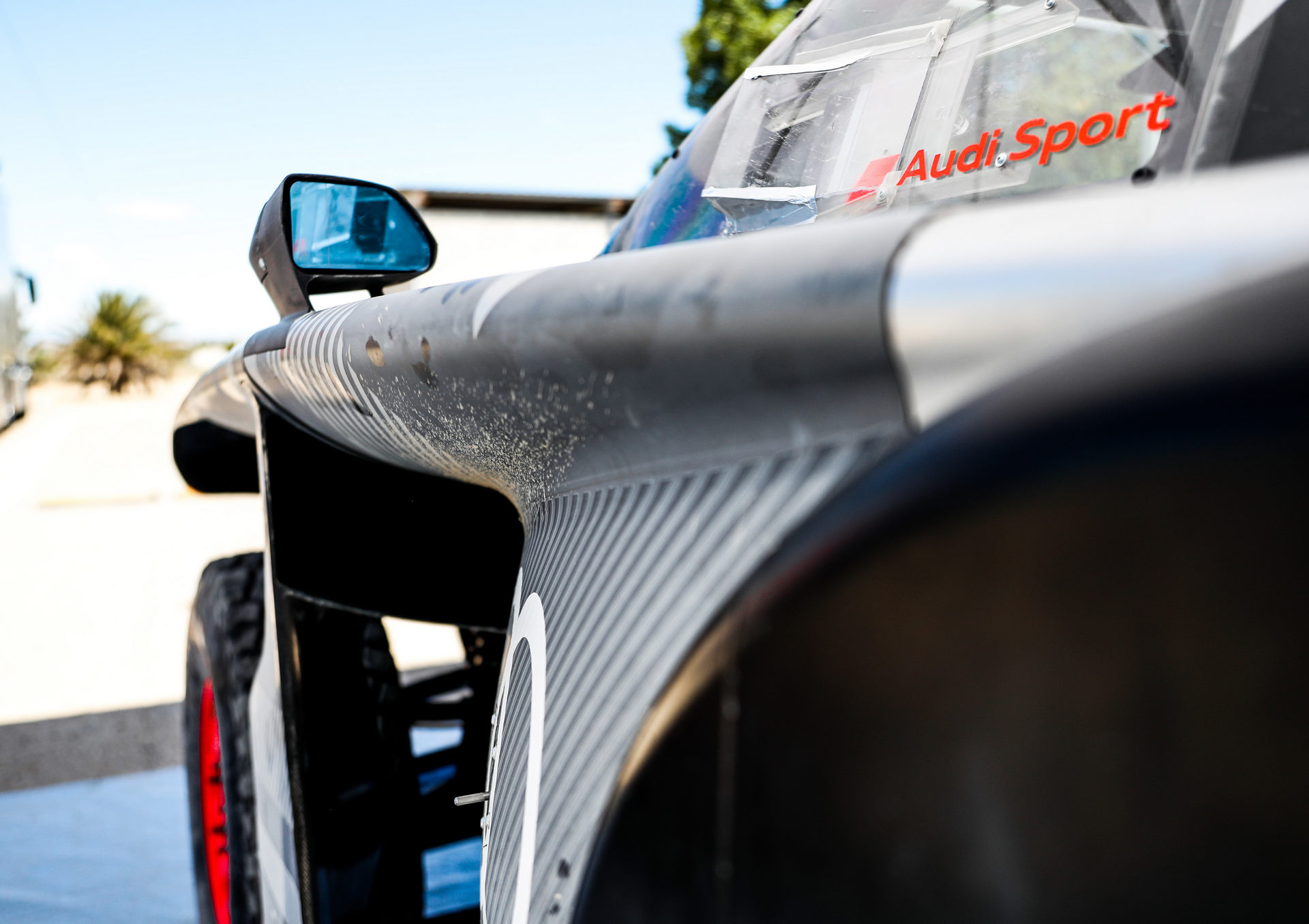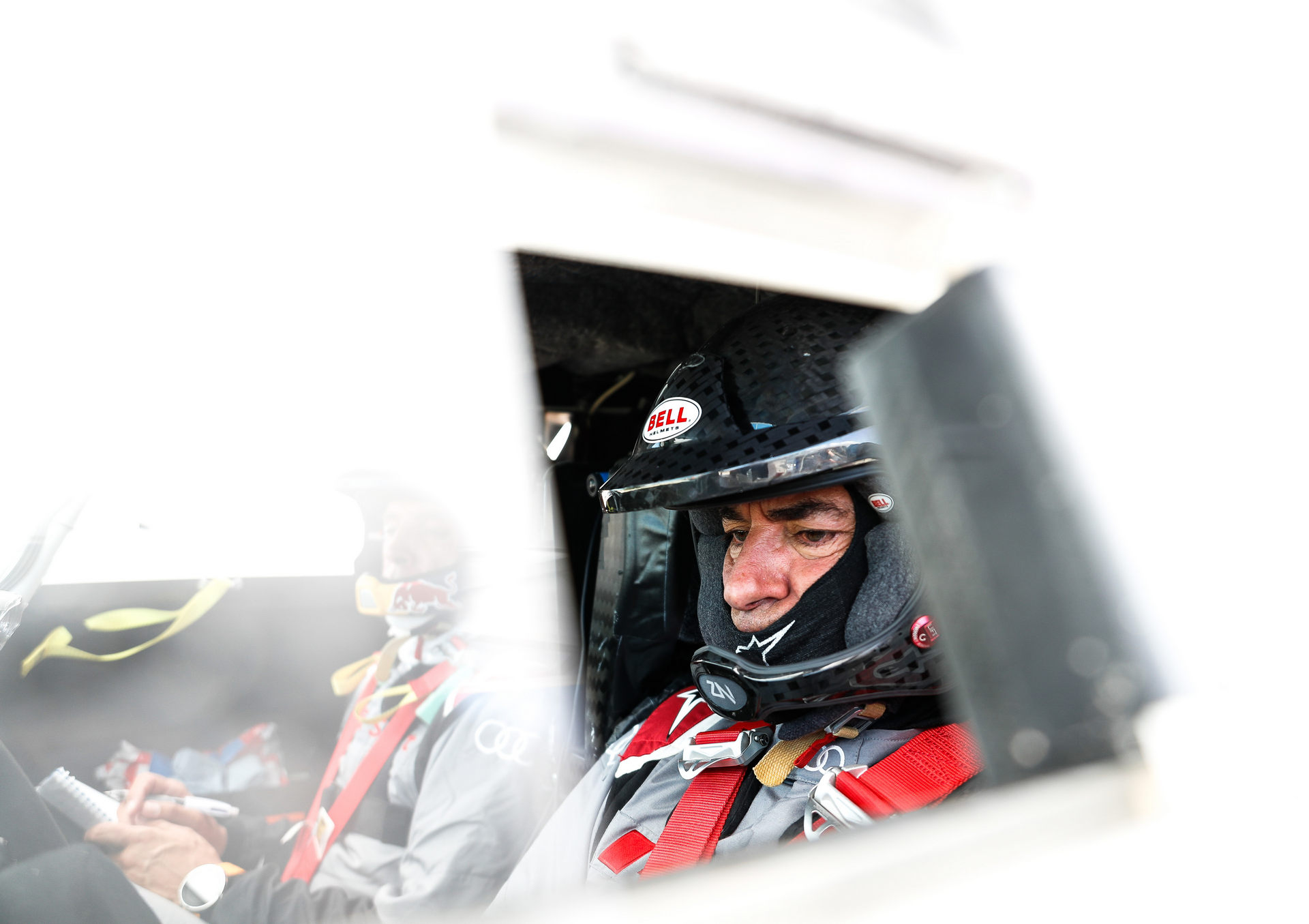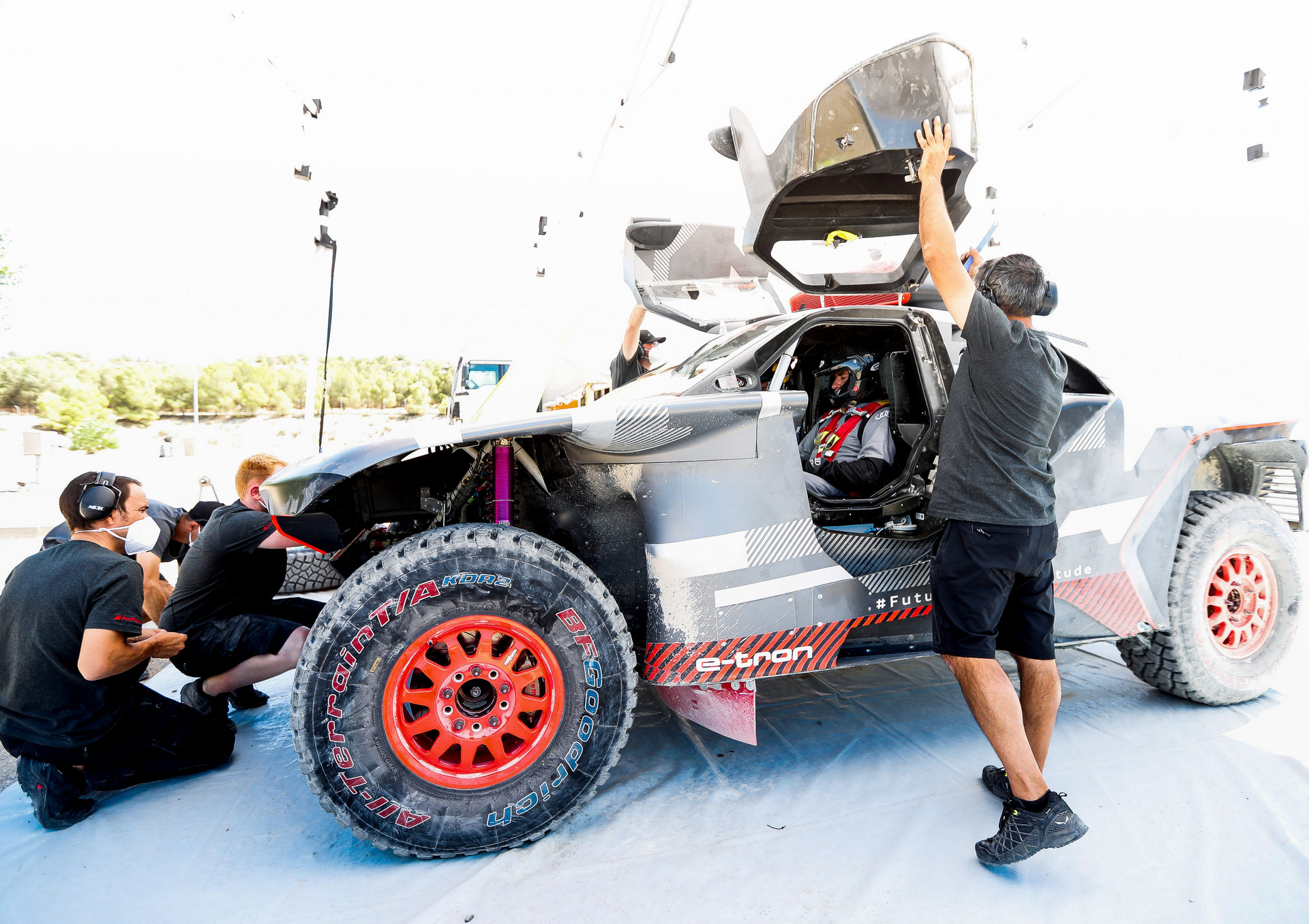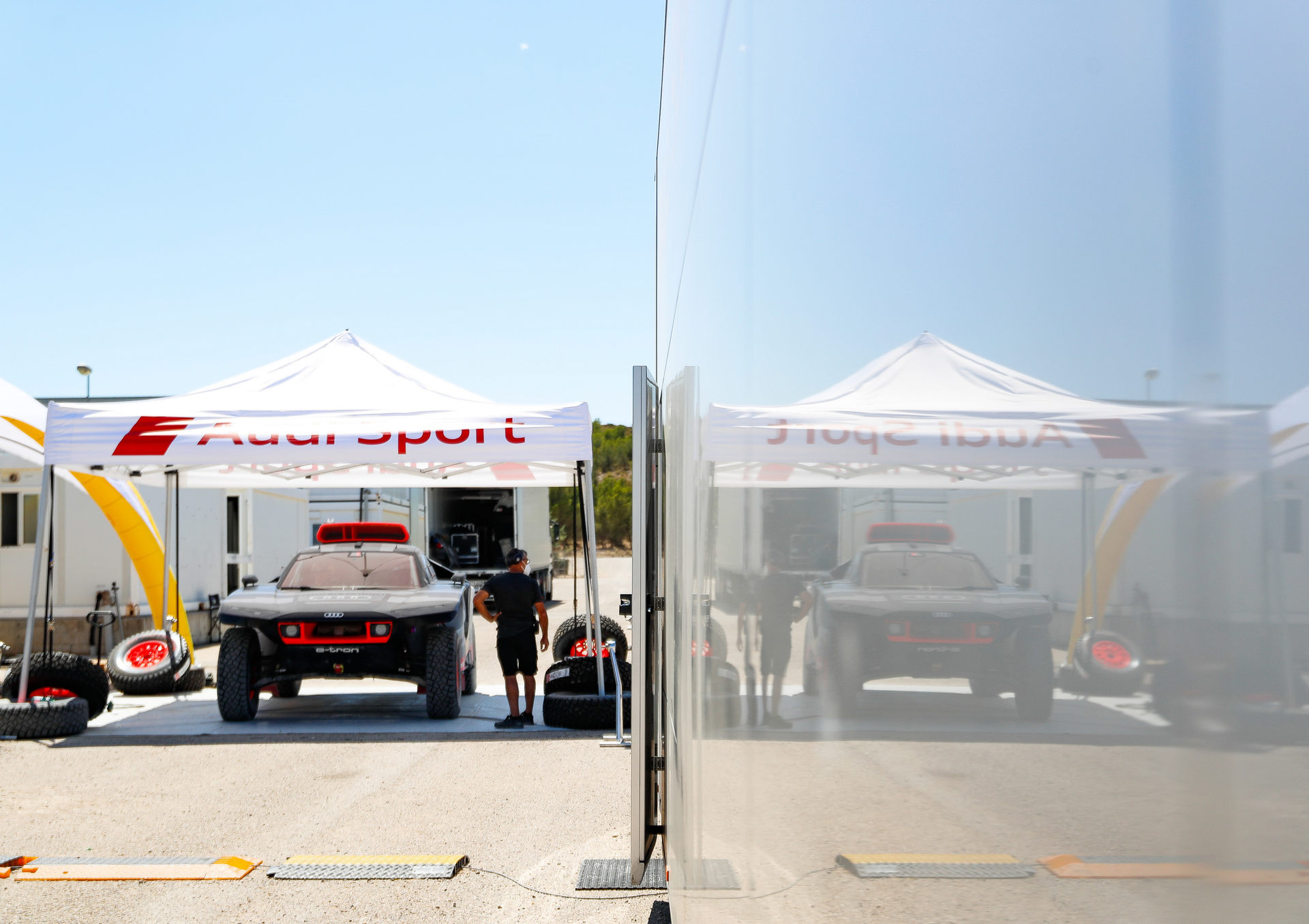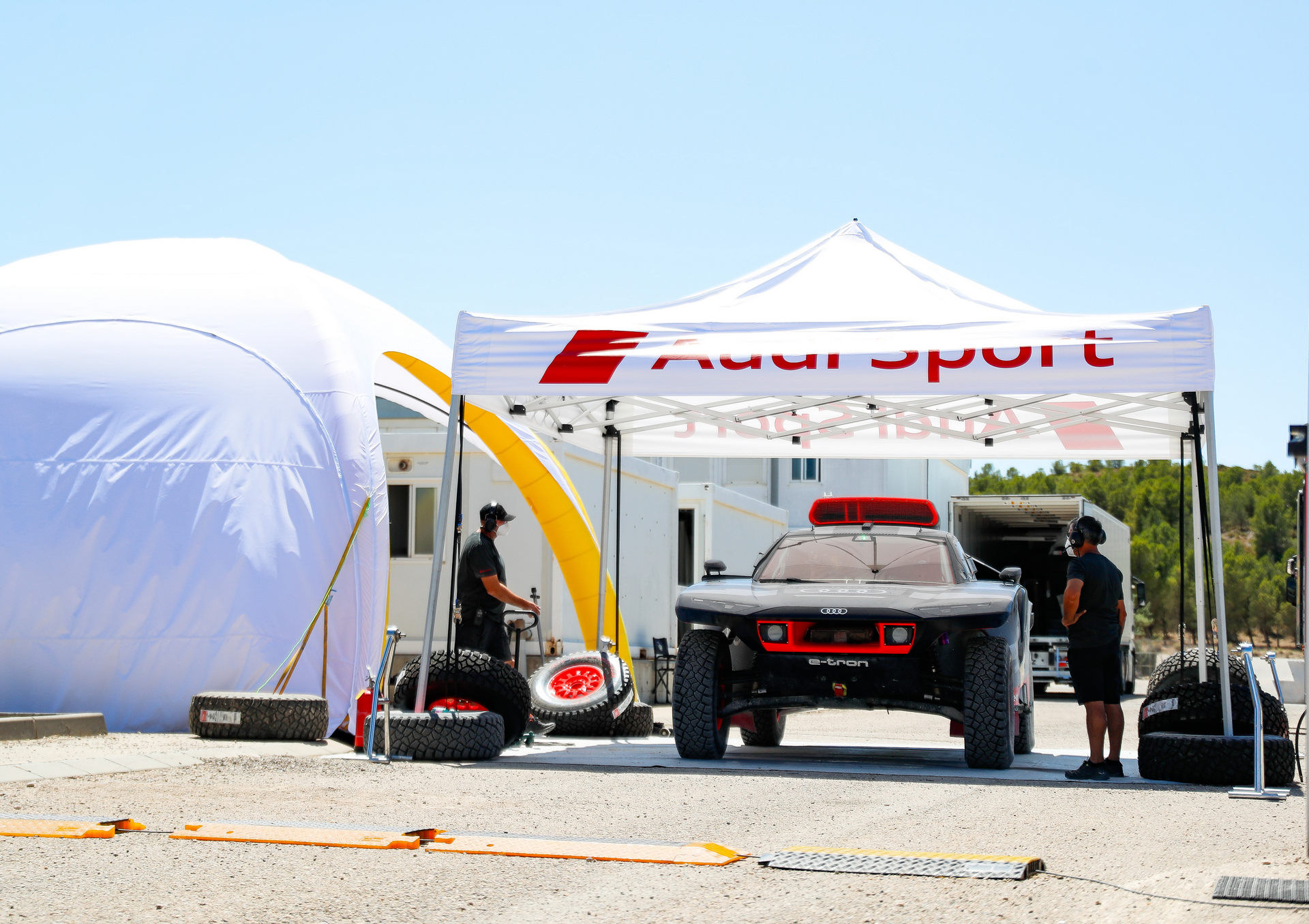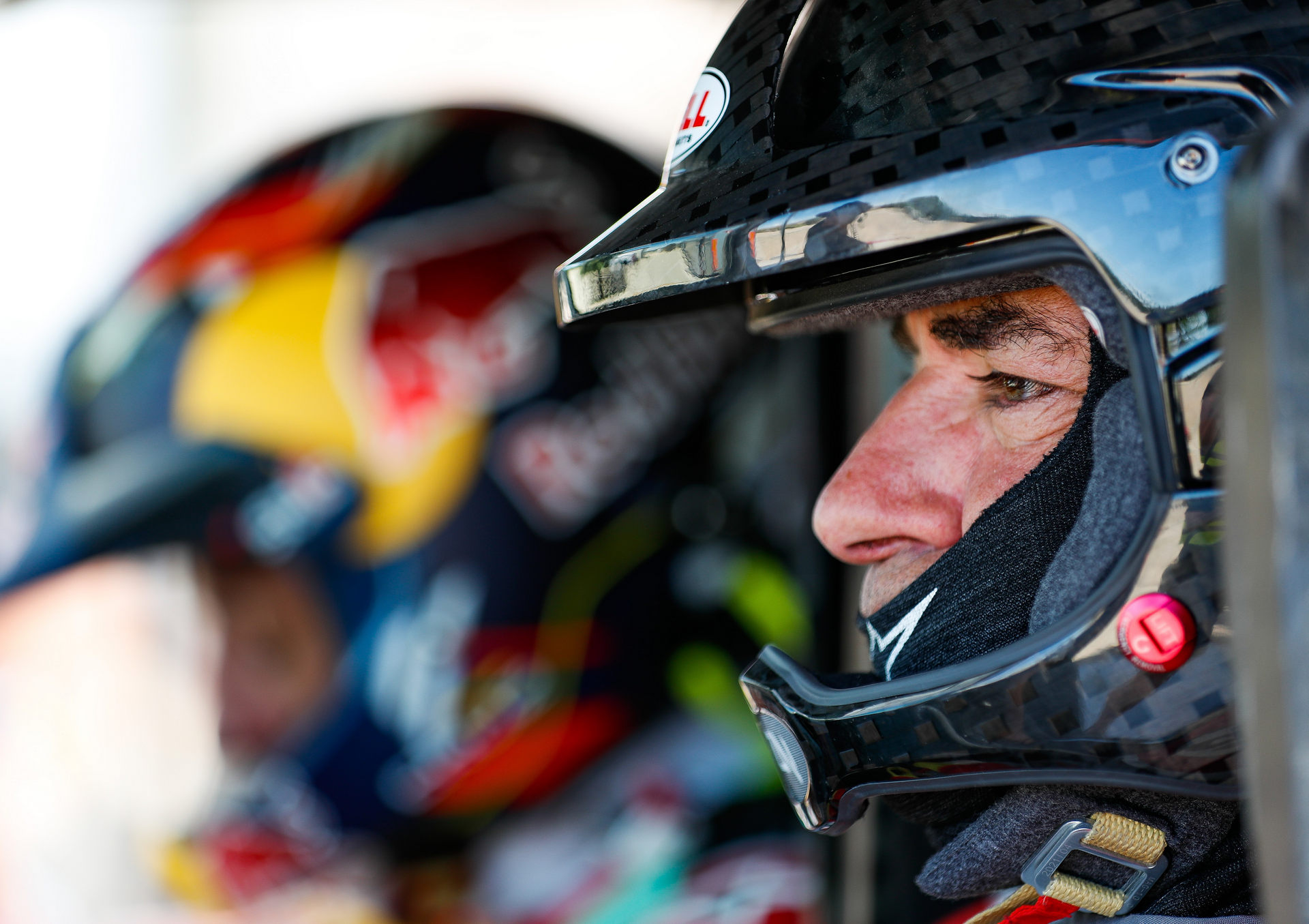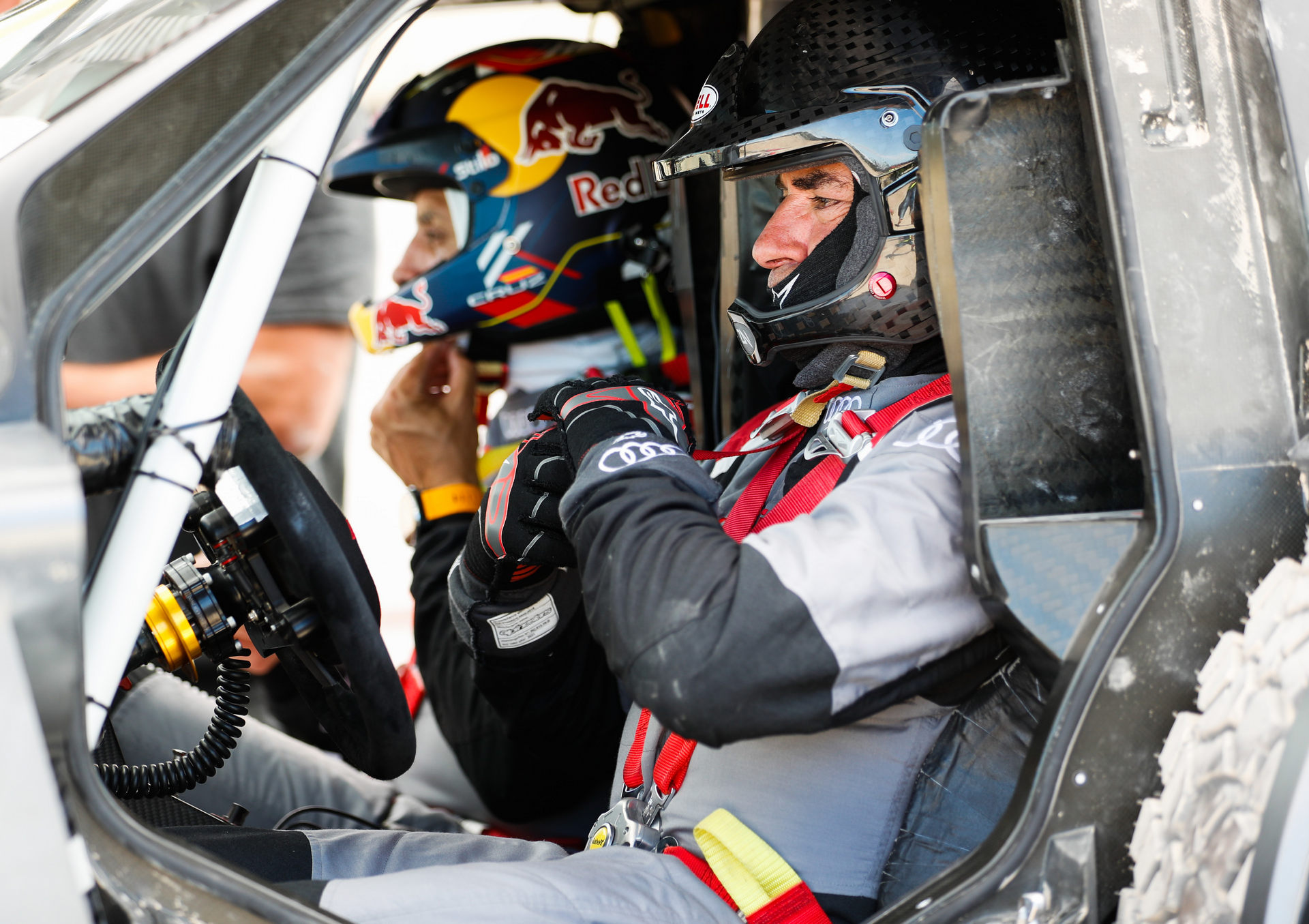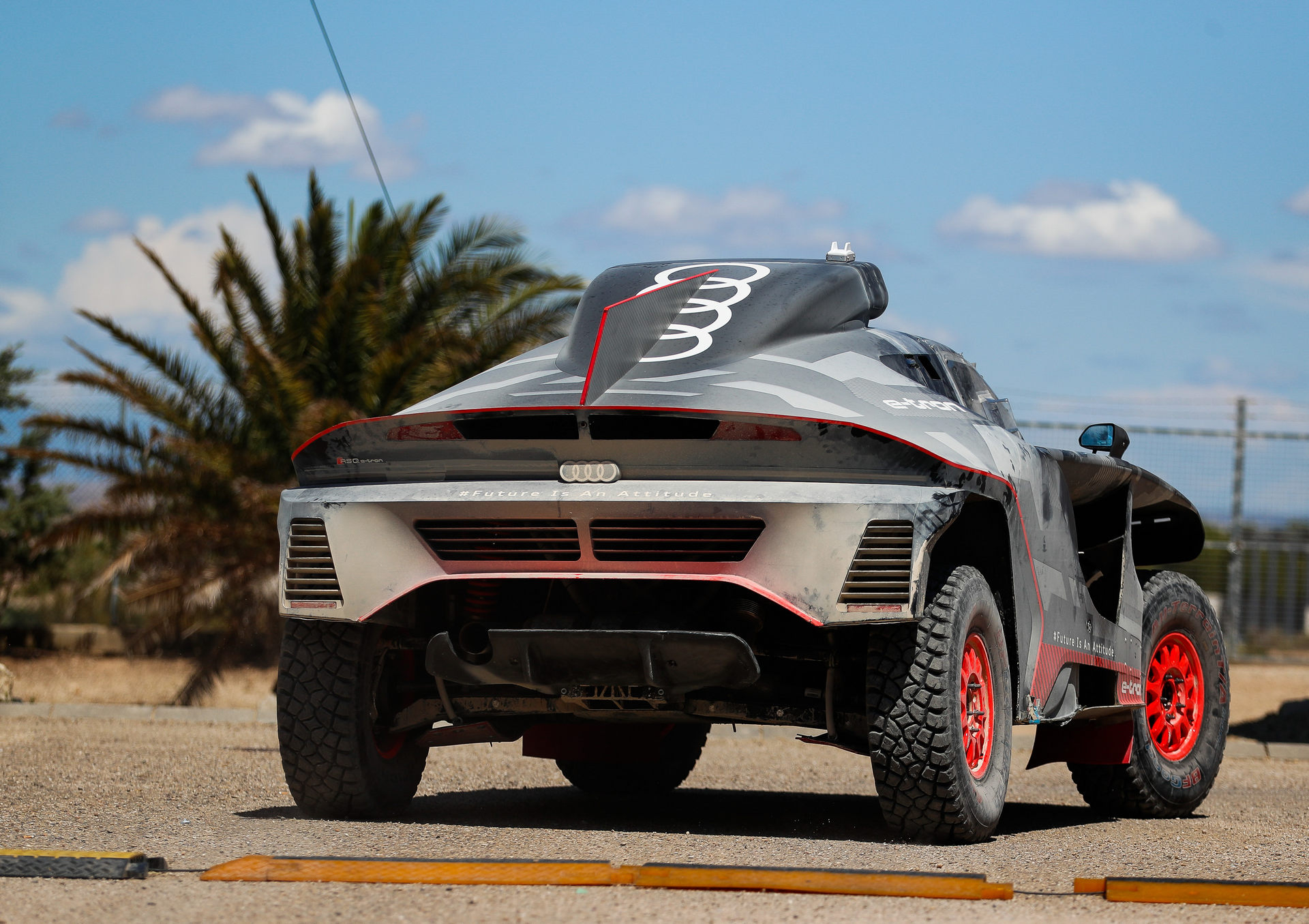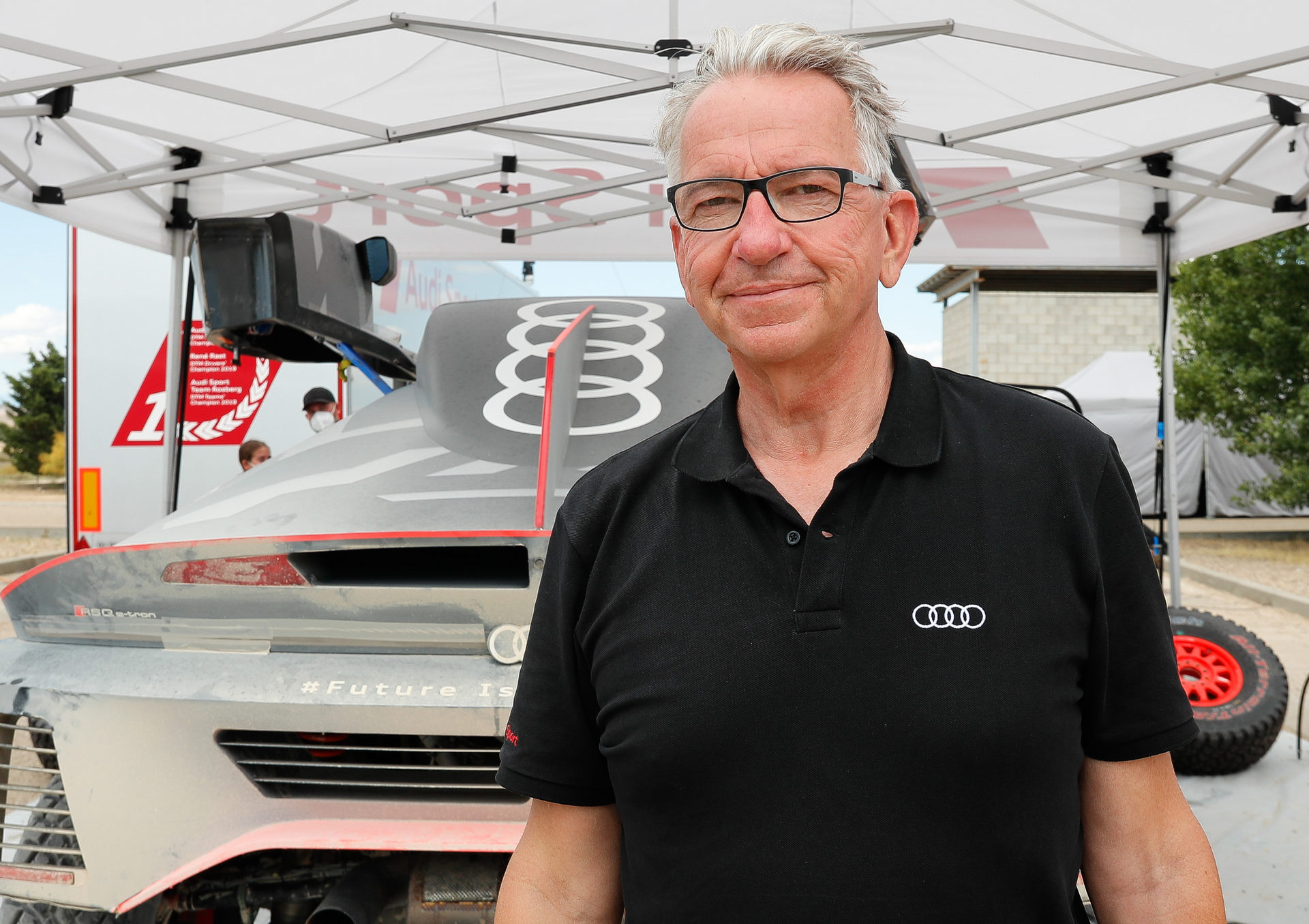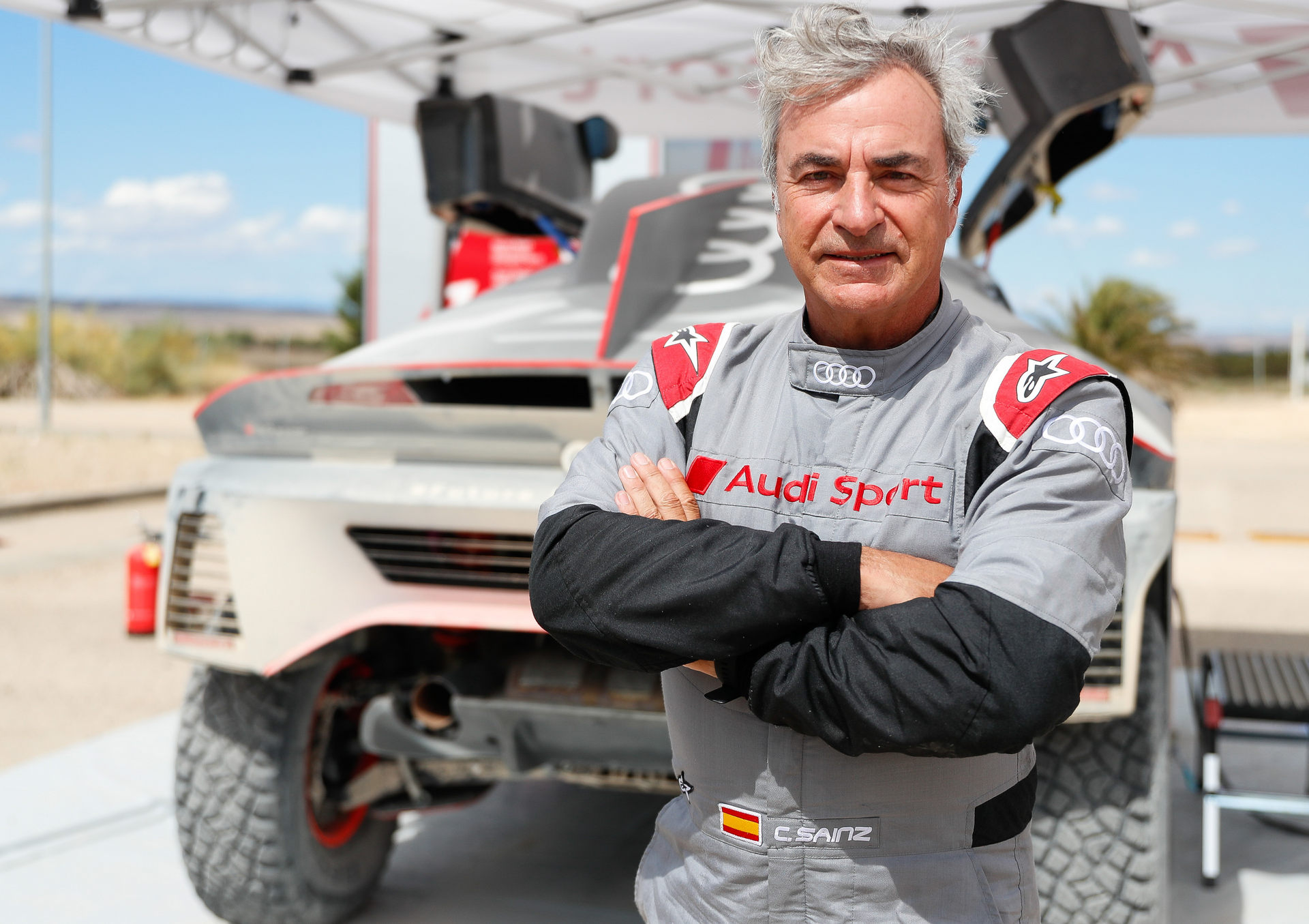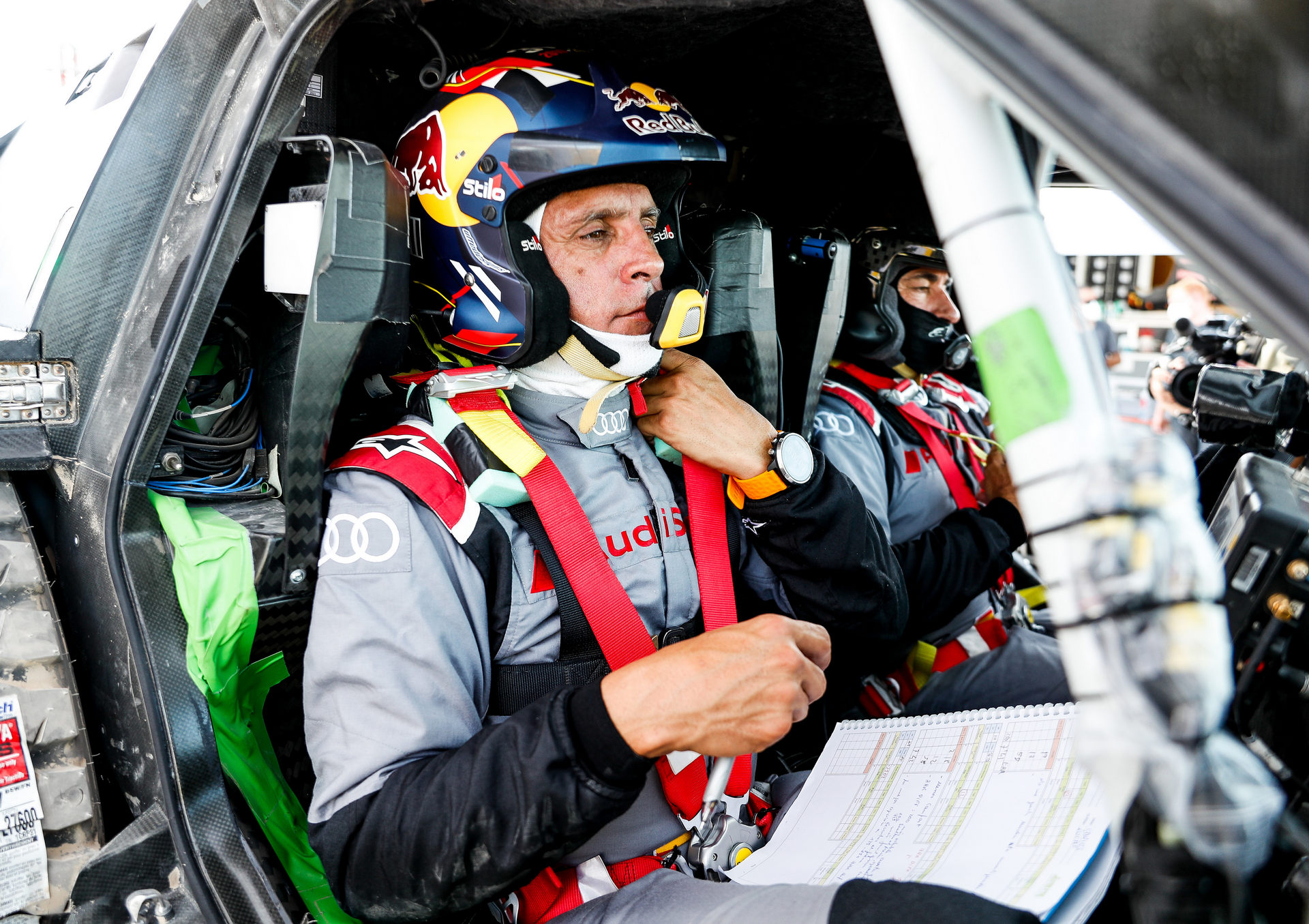Audi will compete in January’s Dakar Rally with the all-electric RS Q e-tron off-roader, and it recently undertook a grueling eight-day endurance test under the Spanish sun.
The test was conducted near the city of Zaragoza with Audi Sport drivers Stéphane Peterhansel and his co-driver Edouard Boulanger driving the RS Q e-tron from Friday to Sunday, Mattias Ekström and Emil Bergkvist testing it on Monday and Tuesday, and Carlos Sainz and Lucas Cruz from Wednesday to Friday.
Throughout the test, the off-roader hit a top speed of 112 mph (180 km/h) while the 34 degrees Celsius (93 degrees Fahrenheit) weather served as an important test for its cooling systems. The RS Q e-tron covered more than 1,700 km (1,056 miles) during the tests.
Read More: Audi RS Q e-tron Revealed For The Dakar Rally, Features Electrified Powertrain With 671 HP
“For a first test in proper conditions for the car I’m really happy how the car behaves already,” Carlos Sainz said after the test. “I had a really good feeling straight away. Of course, there is fine-tuning to be done – but the starting point is good.”
“This test was focused on getting in as much driving as possible and detecting weak spots,” added development engineer Arnau Niubó Bosch. “The next test in September will take us into the dunes for the first time.”
The Audi RS Q e-tron is powered by a battery pack that weighs approximately 816 lbs (370 kg) and has a capacity of around 50 kWh. It feeds front and rear electric motors that combine to produce 671 hp, although it remains to be seen if the Dakar Rally organizers will allow all of this power. As it will need to complete stages that are up to 497 miles (800 km) long, and there are obviously no chargers in the desert, the electric race car also features a 2.0-liter TFSI four-cylinder engine that acts as a generator to recharge the batteries.



